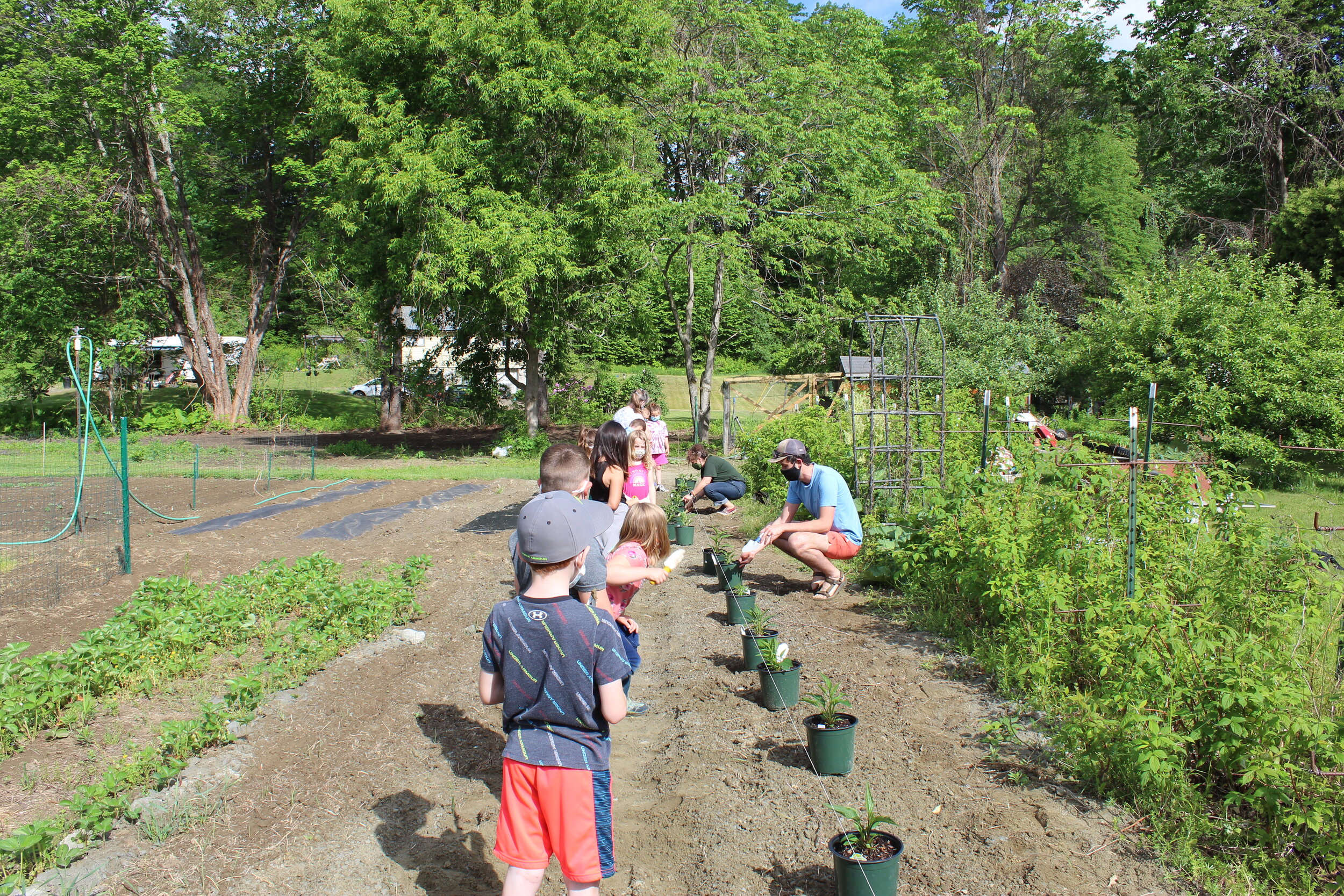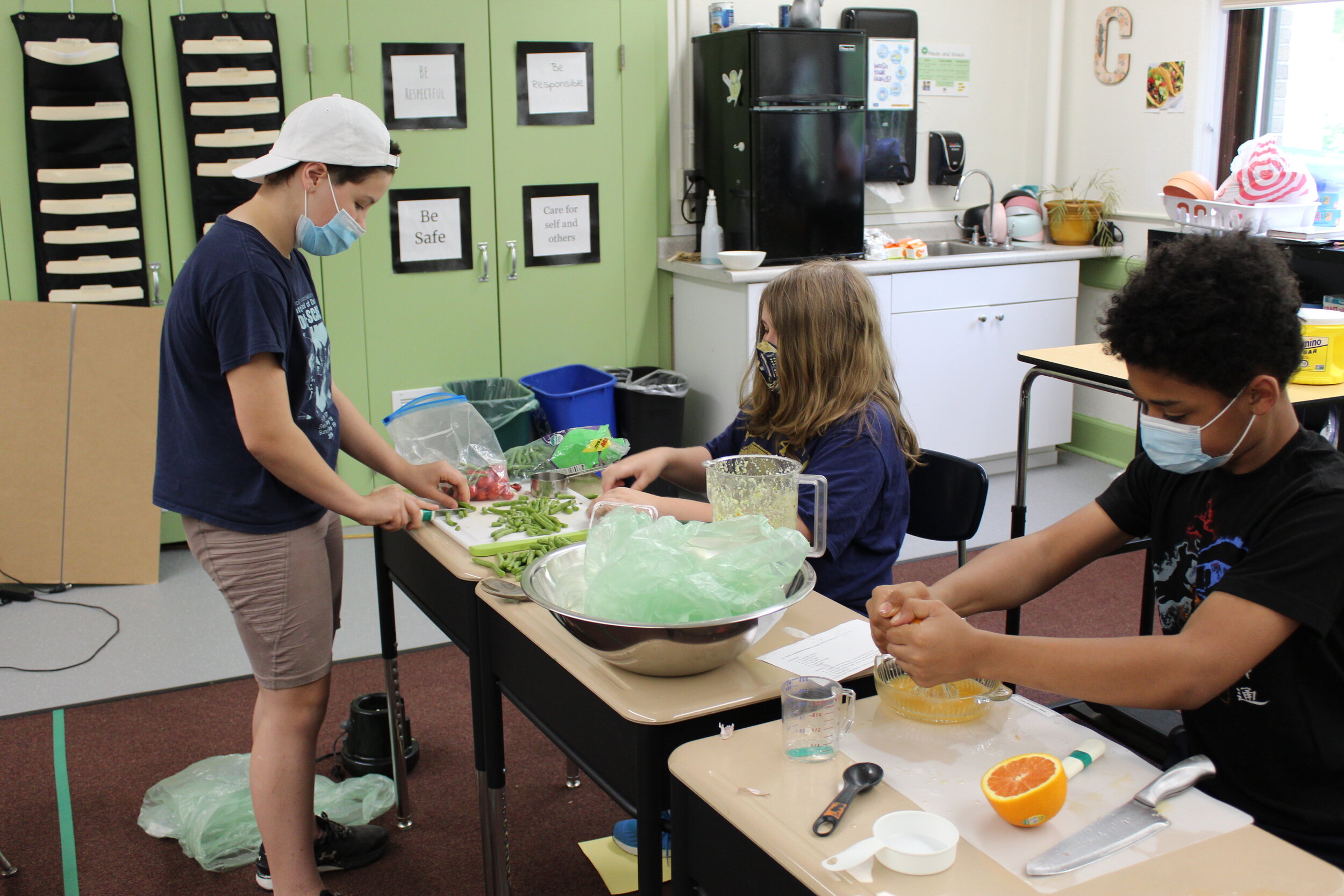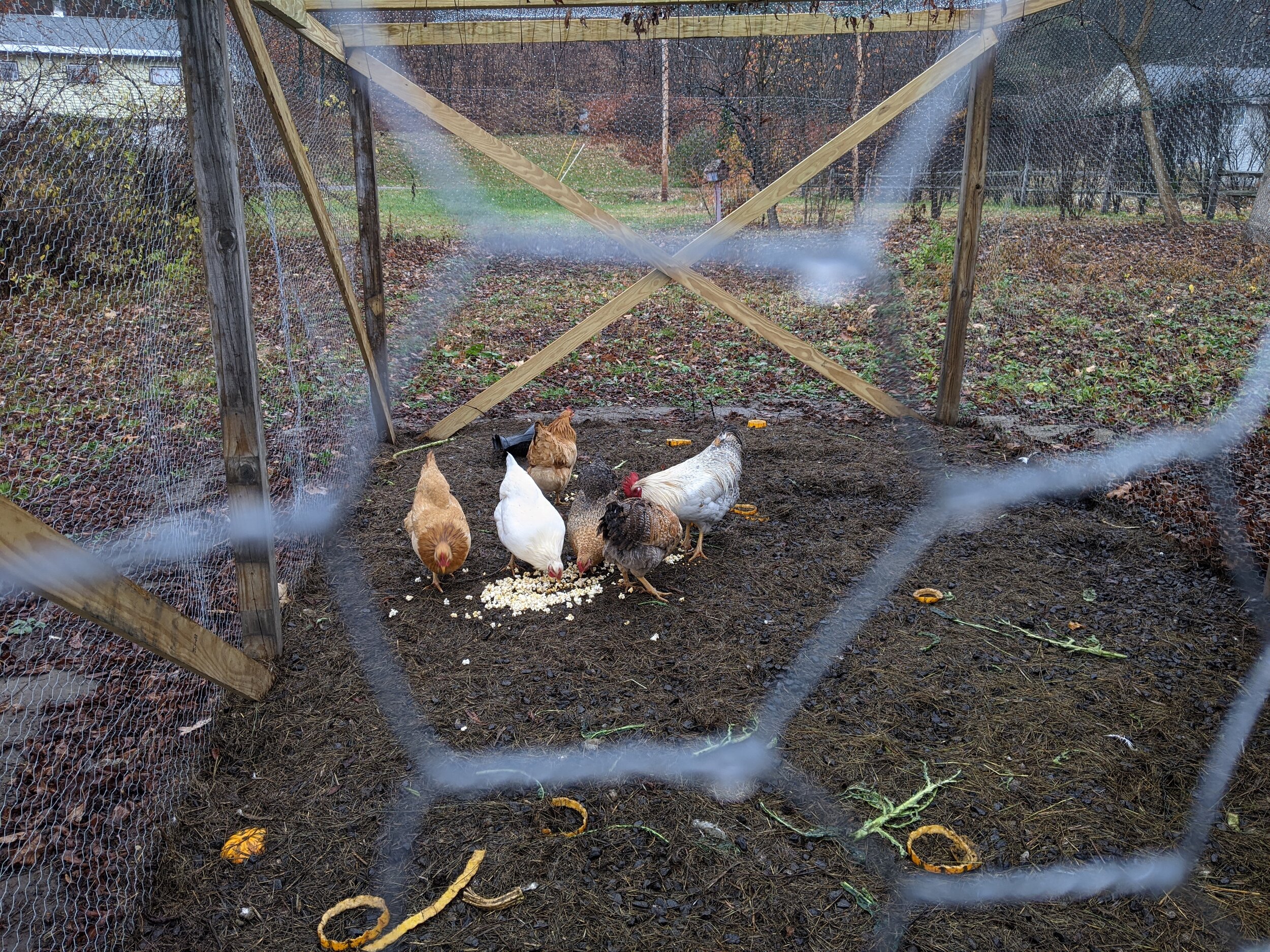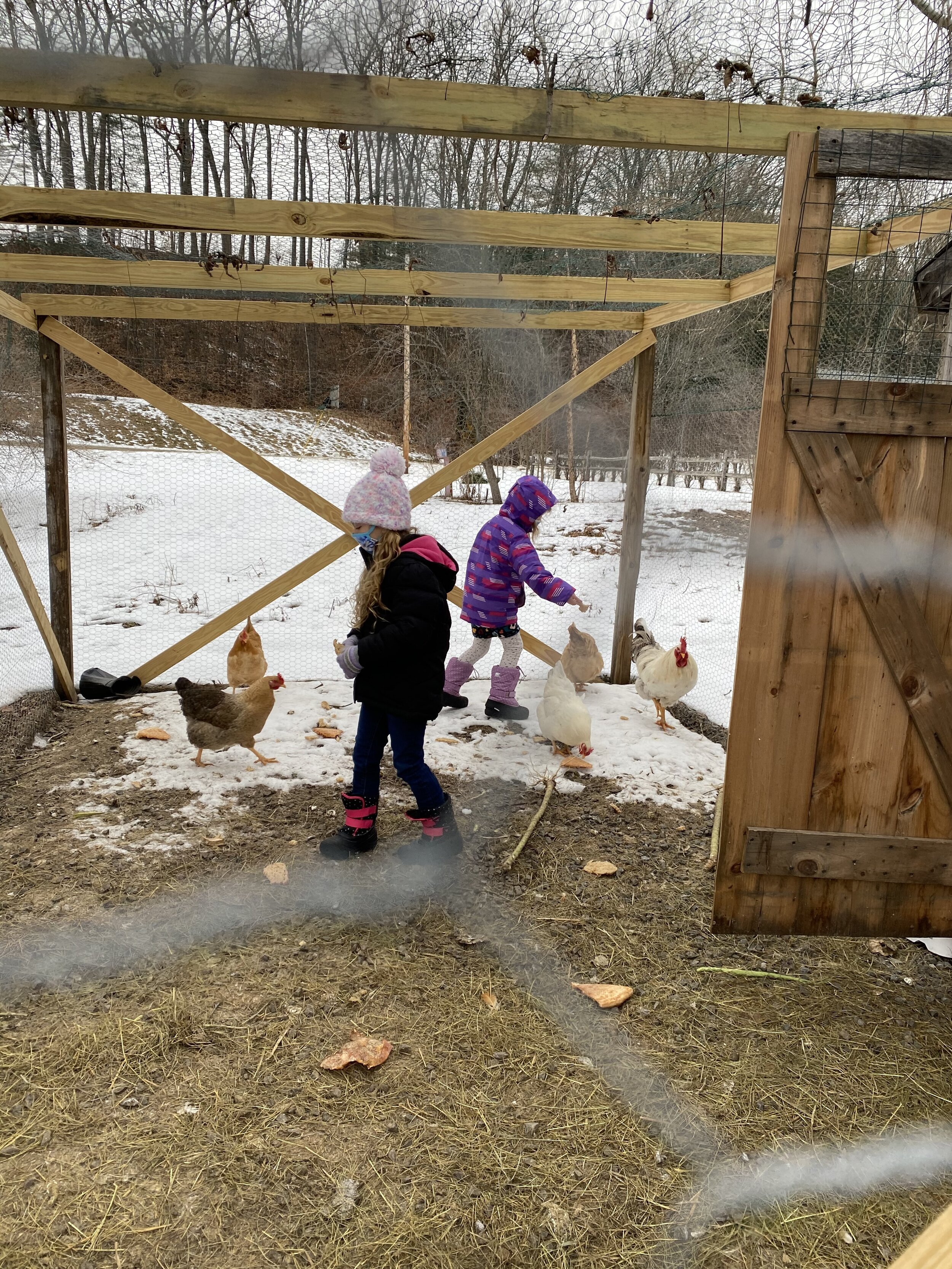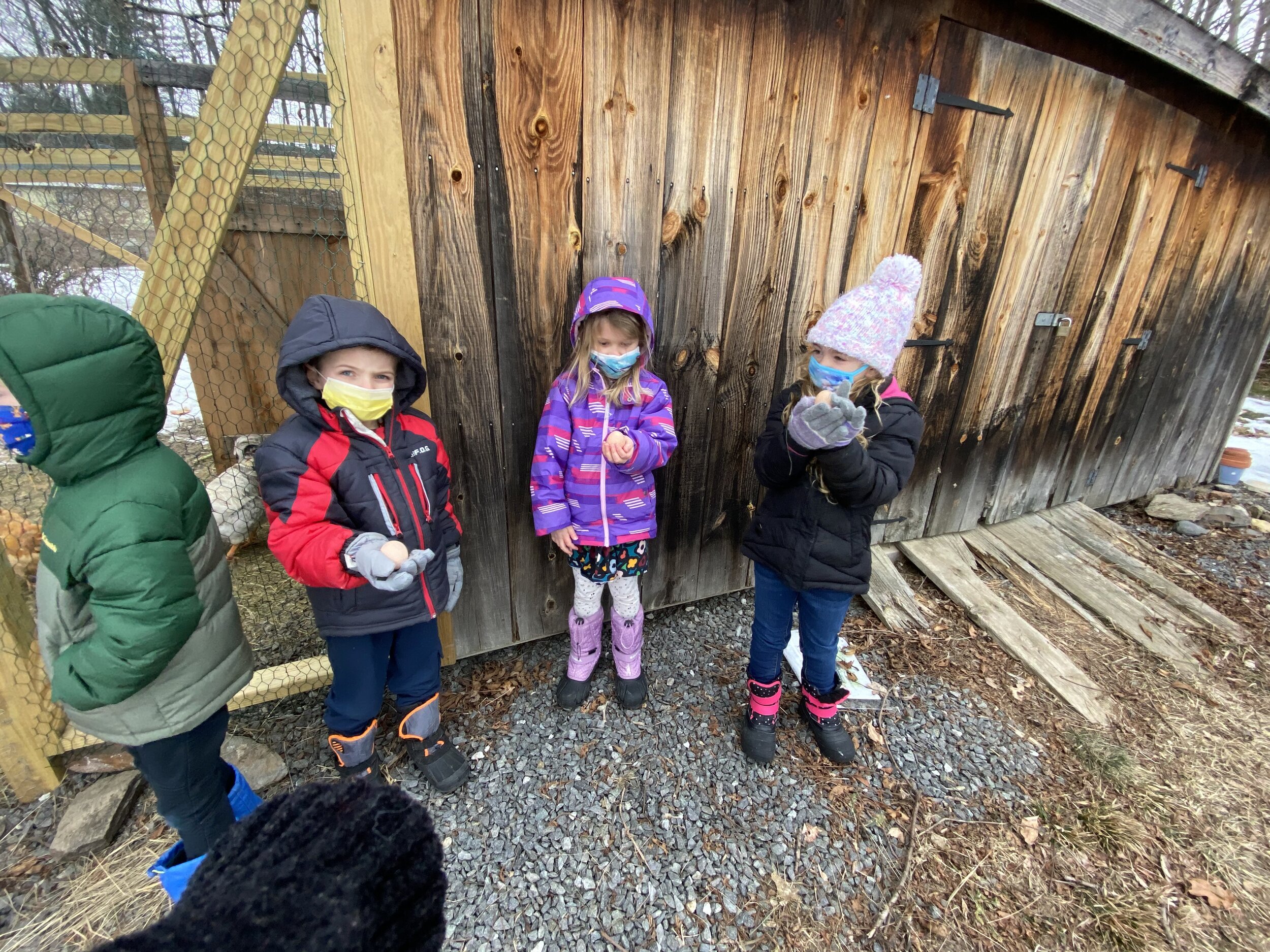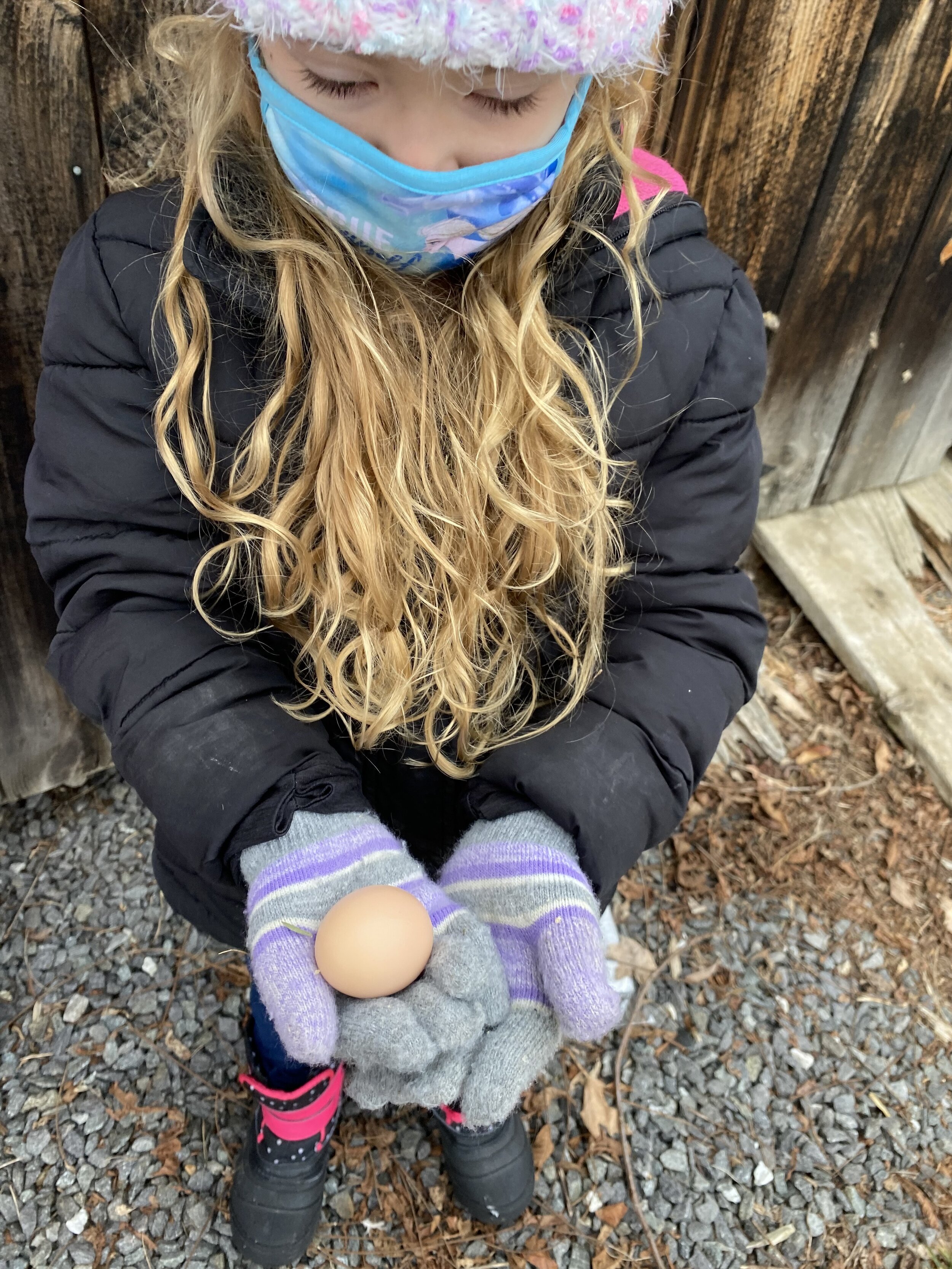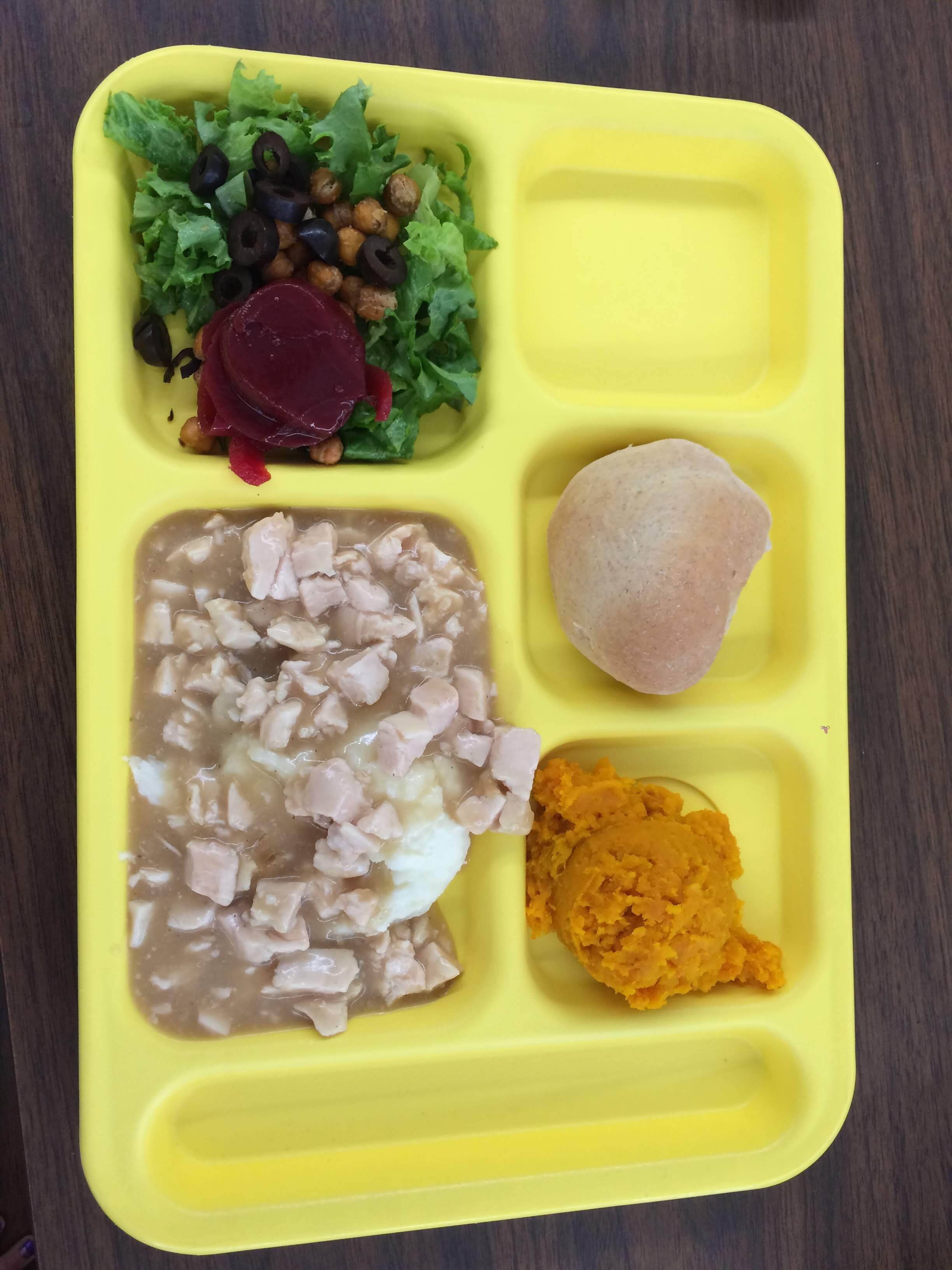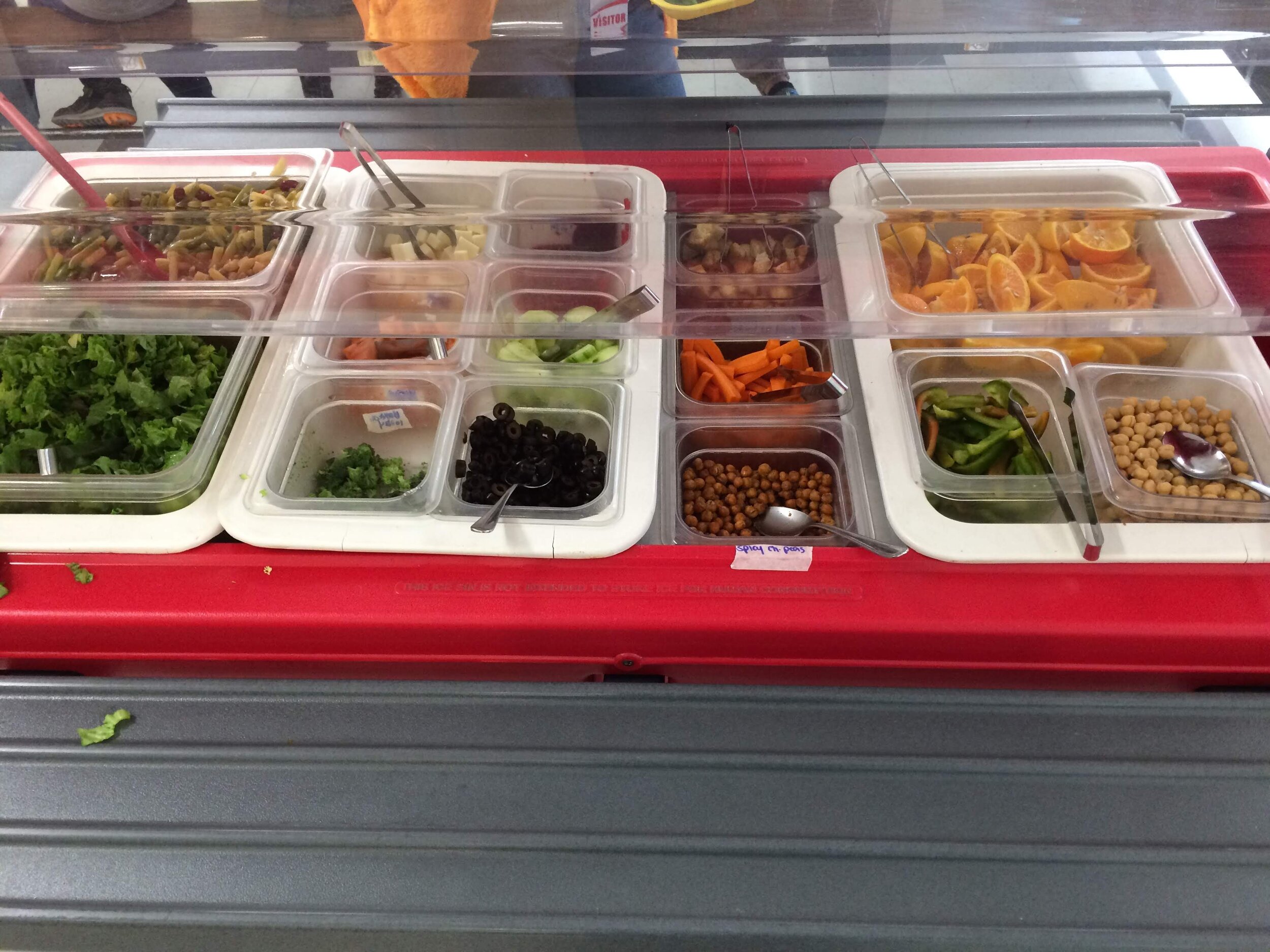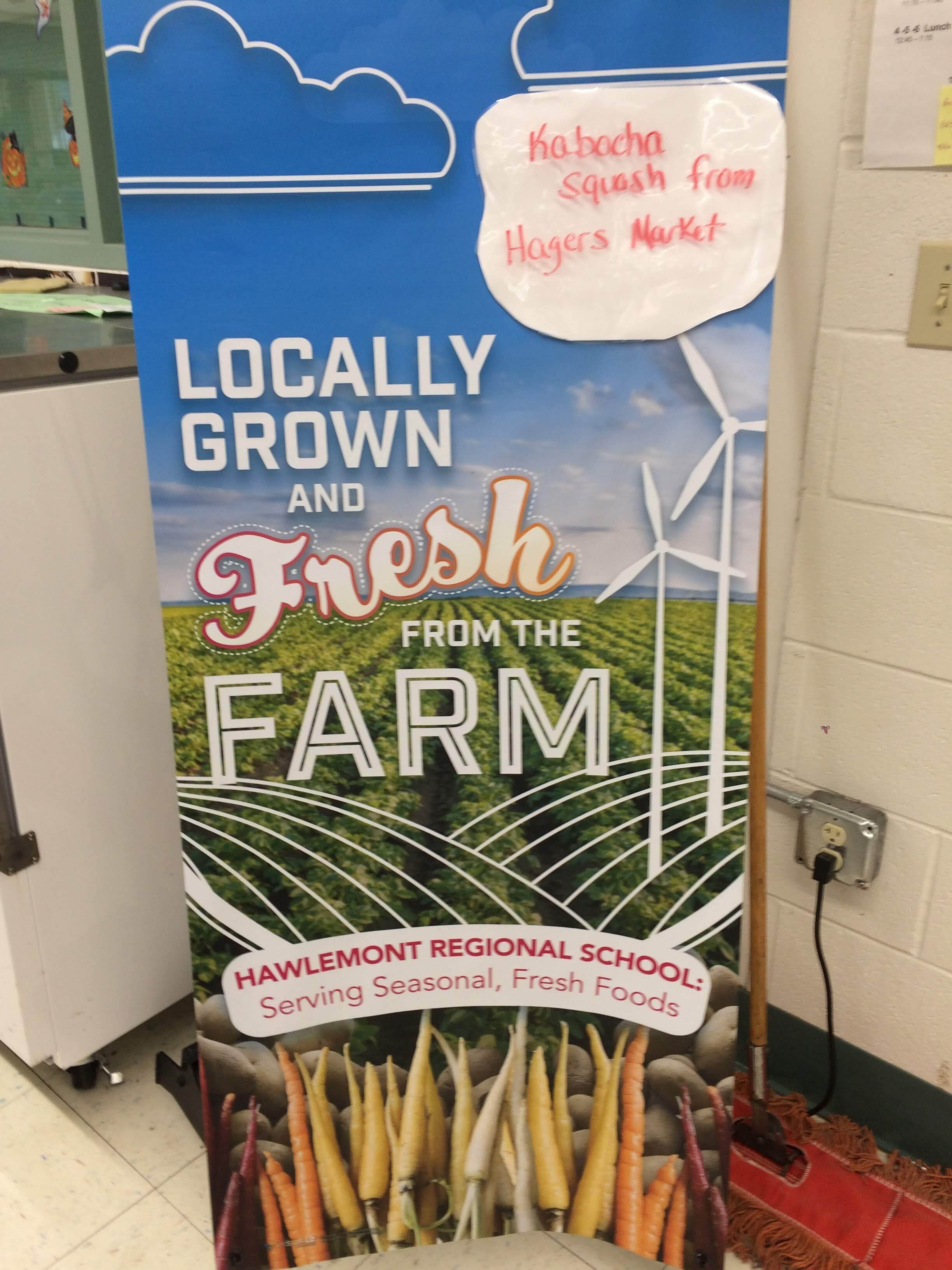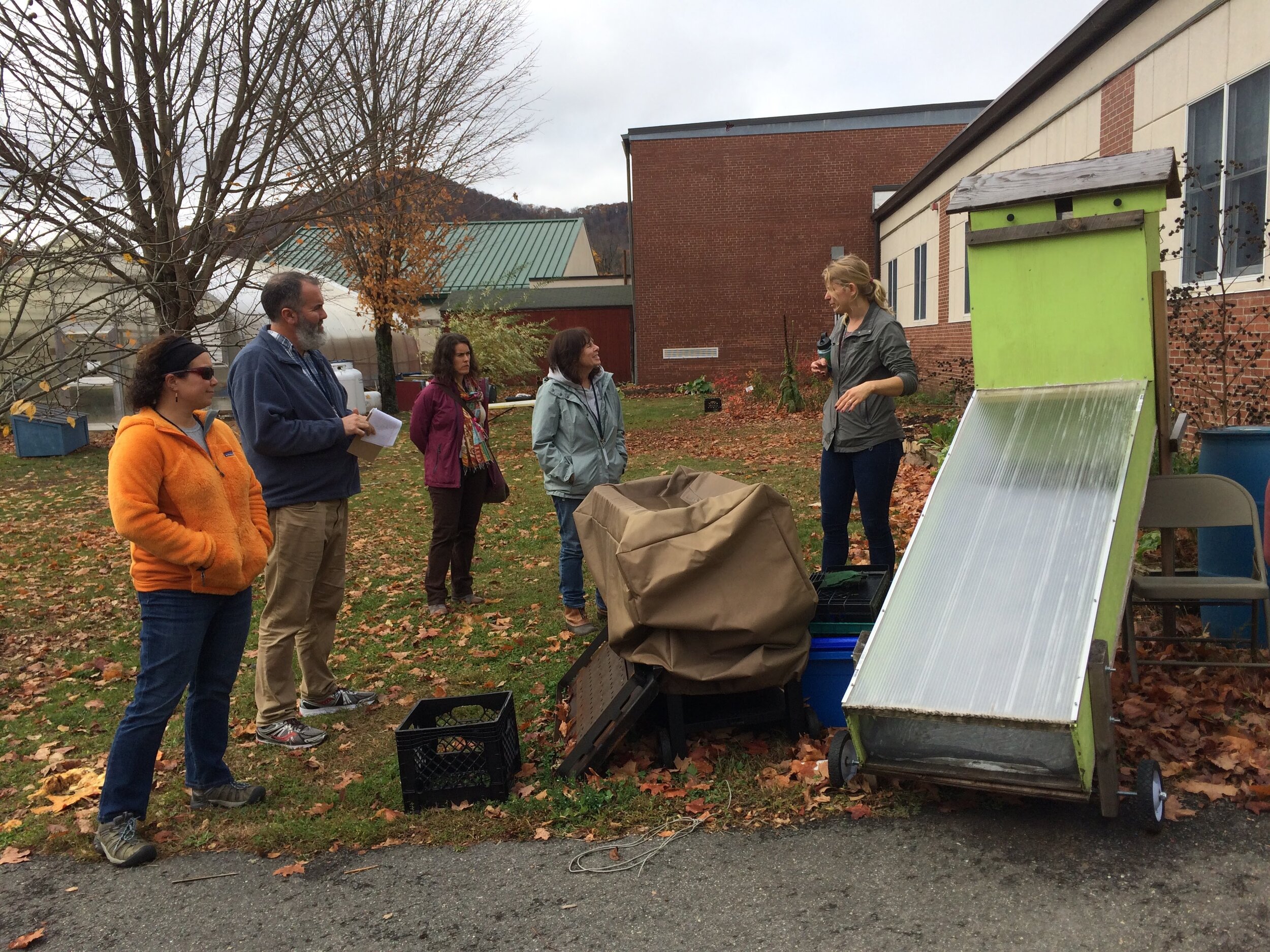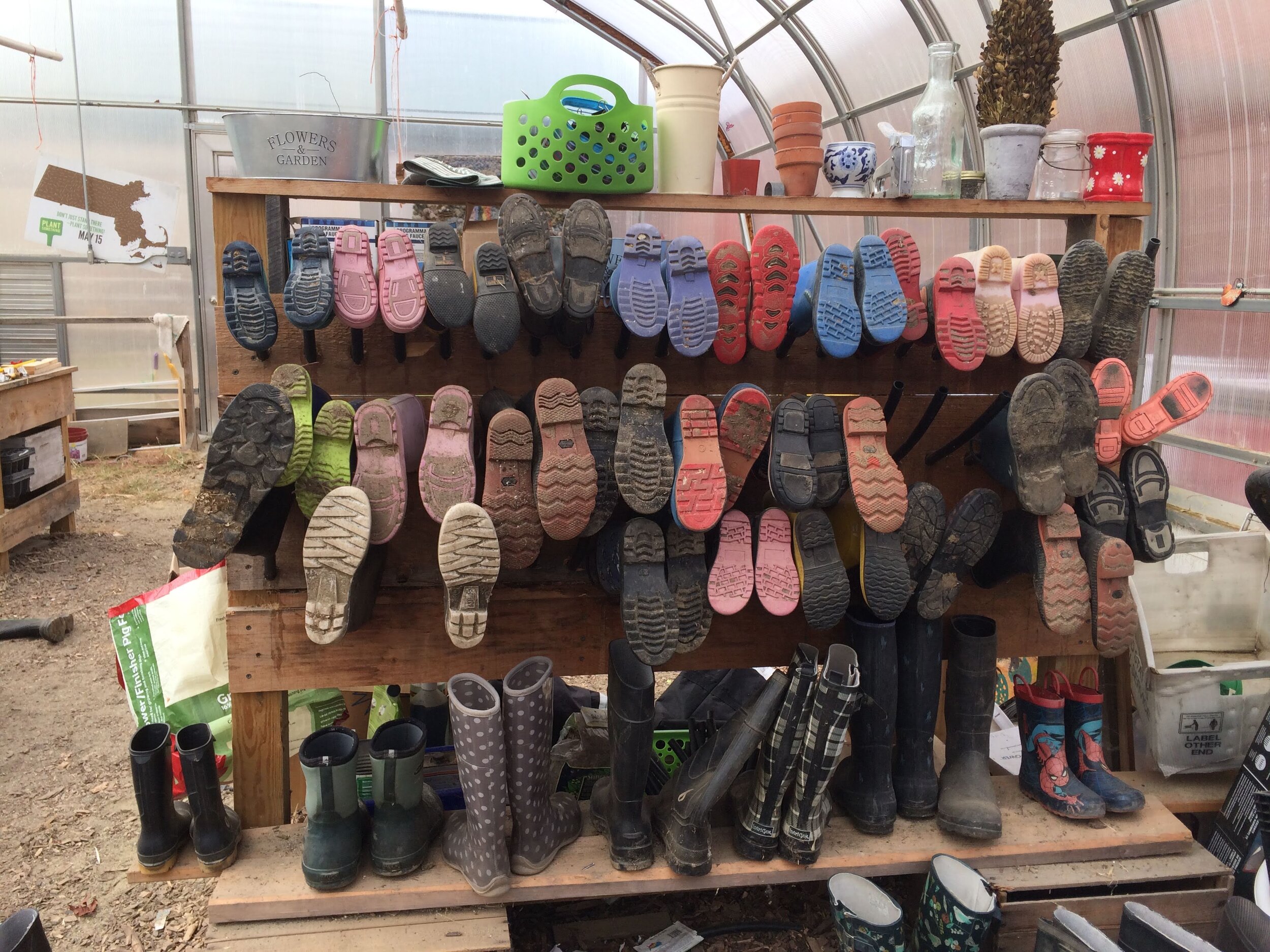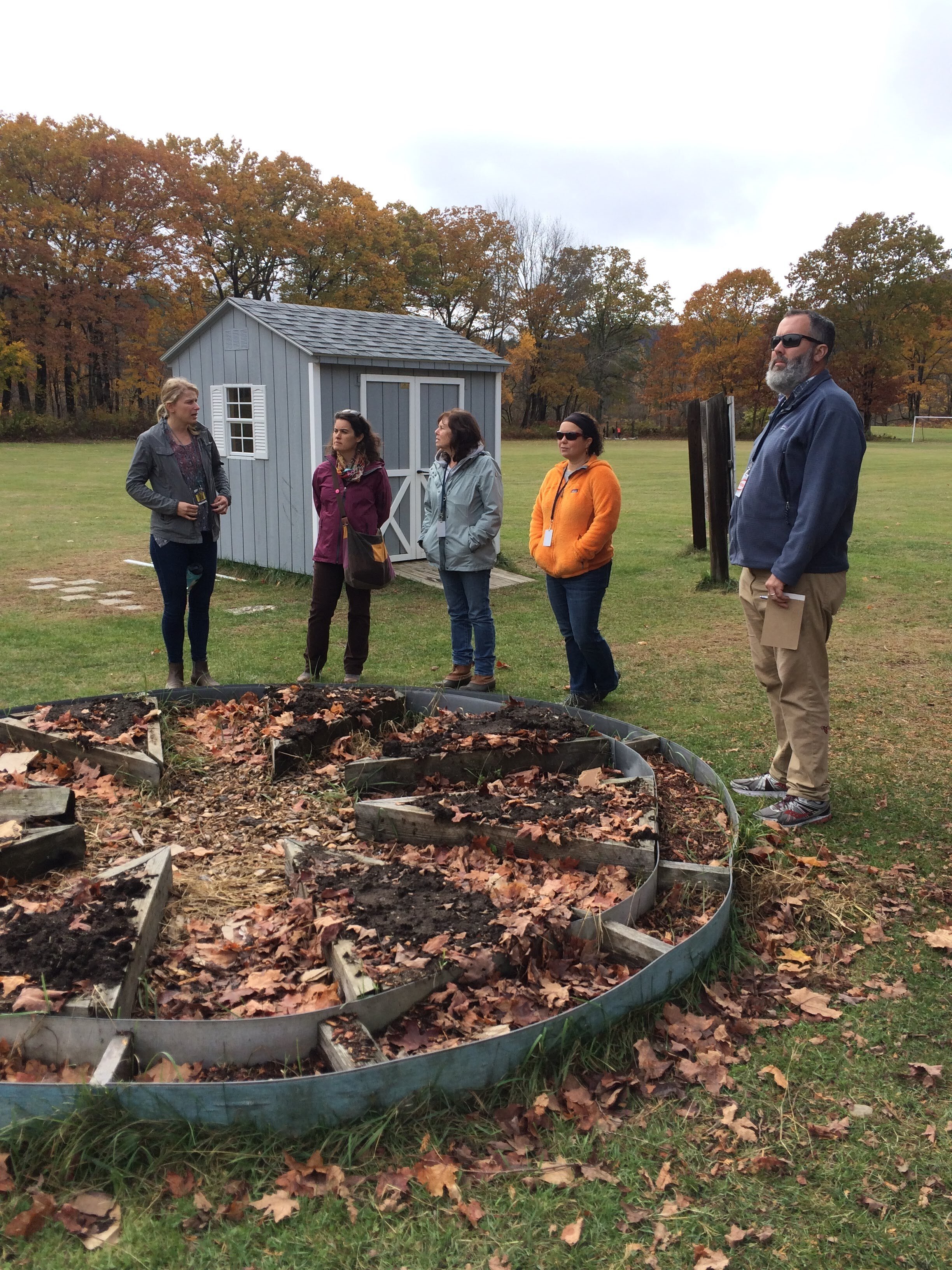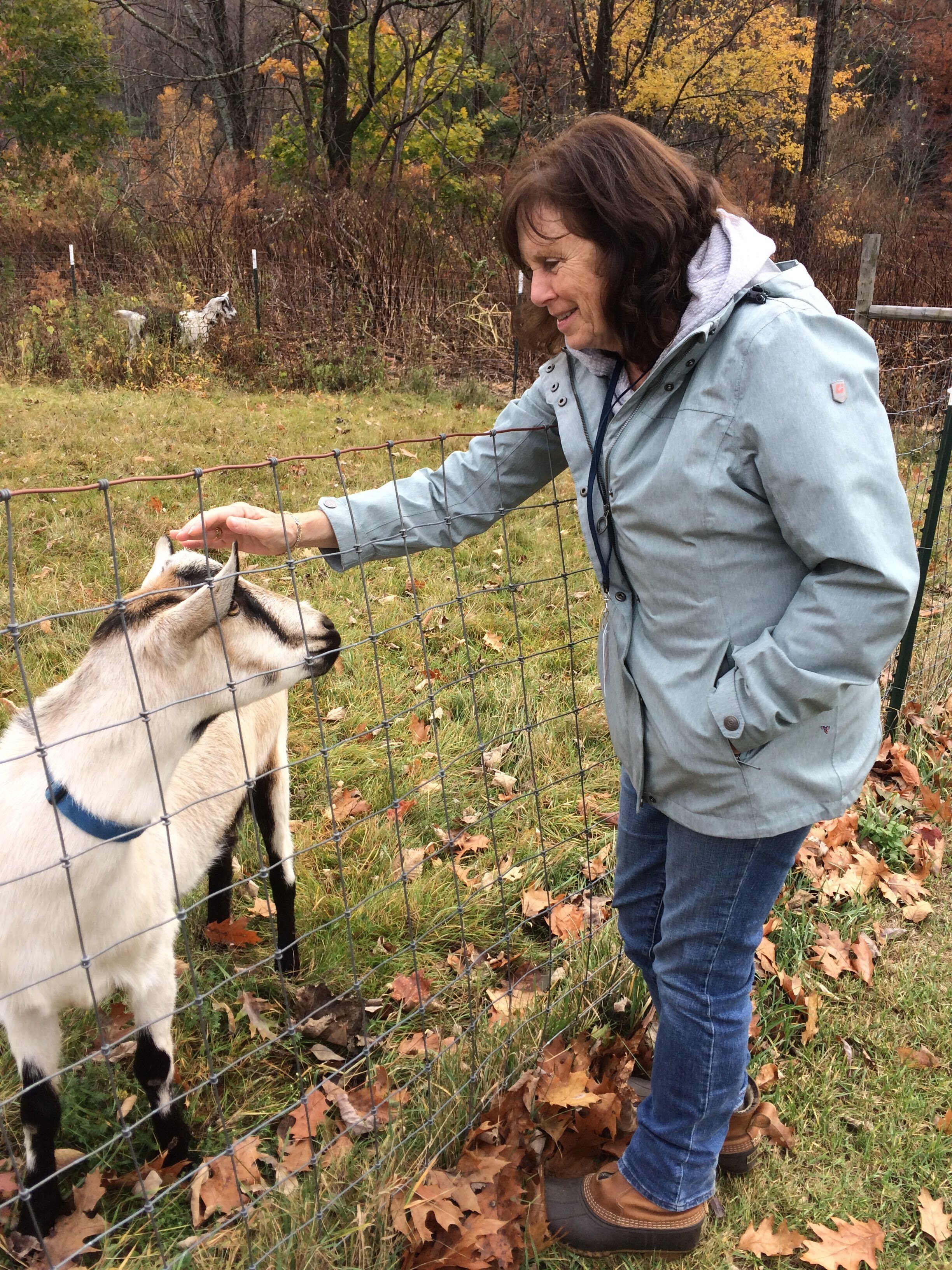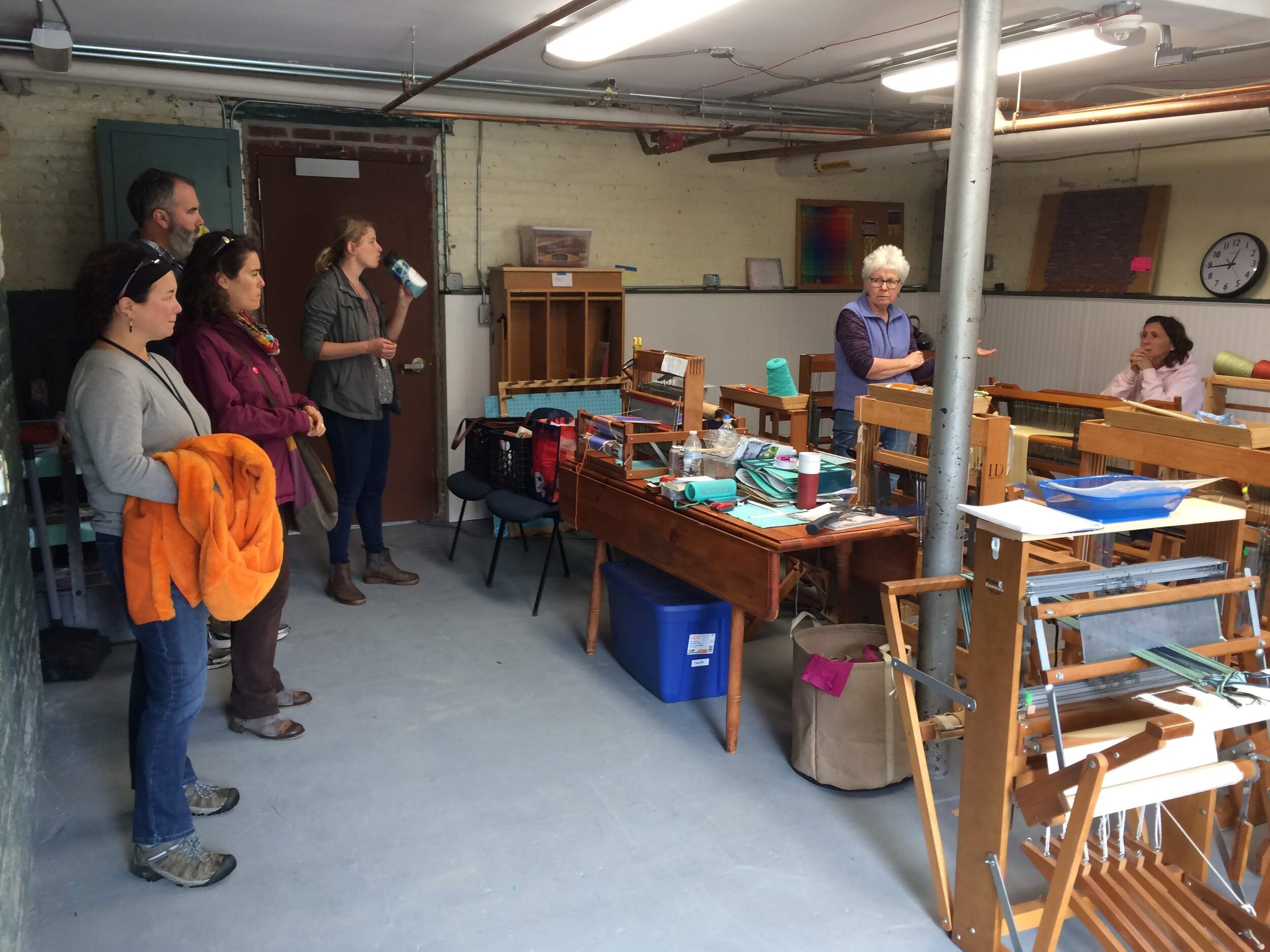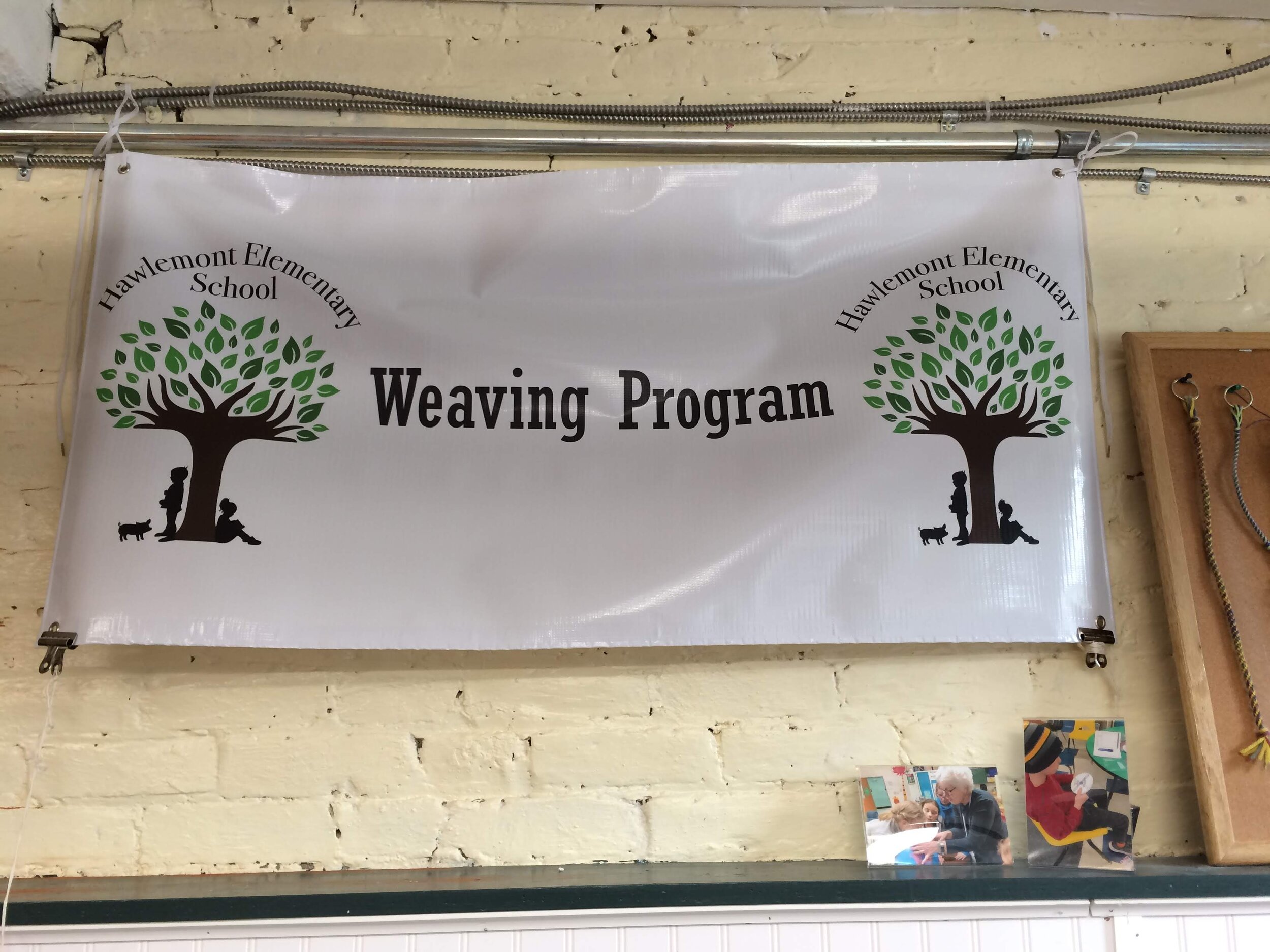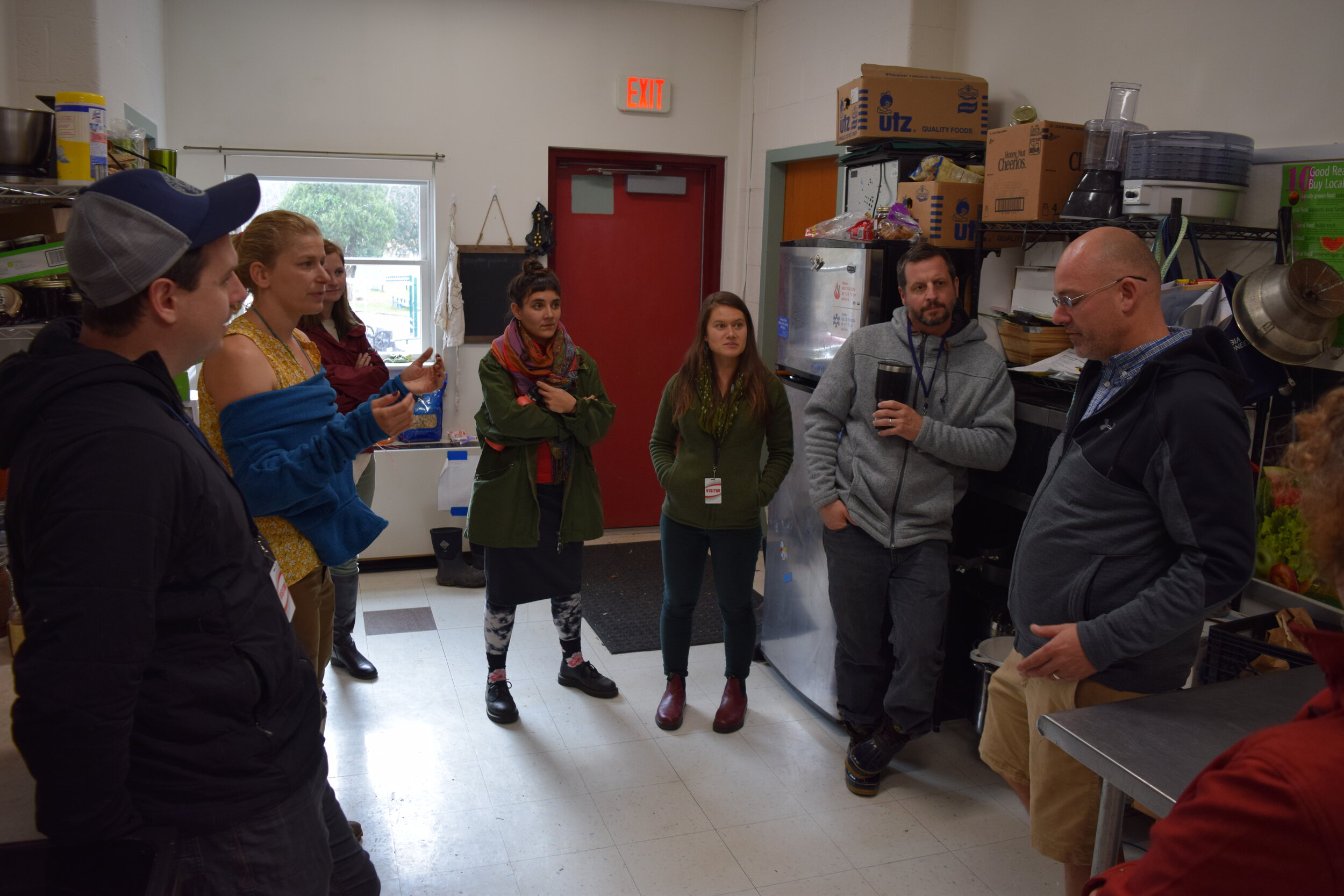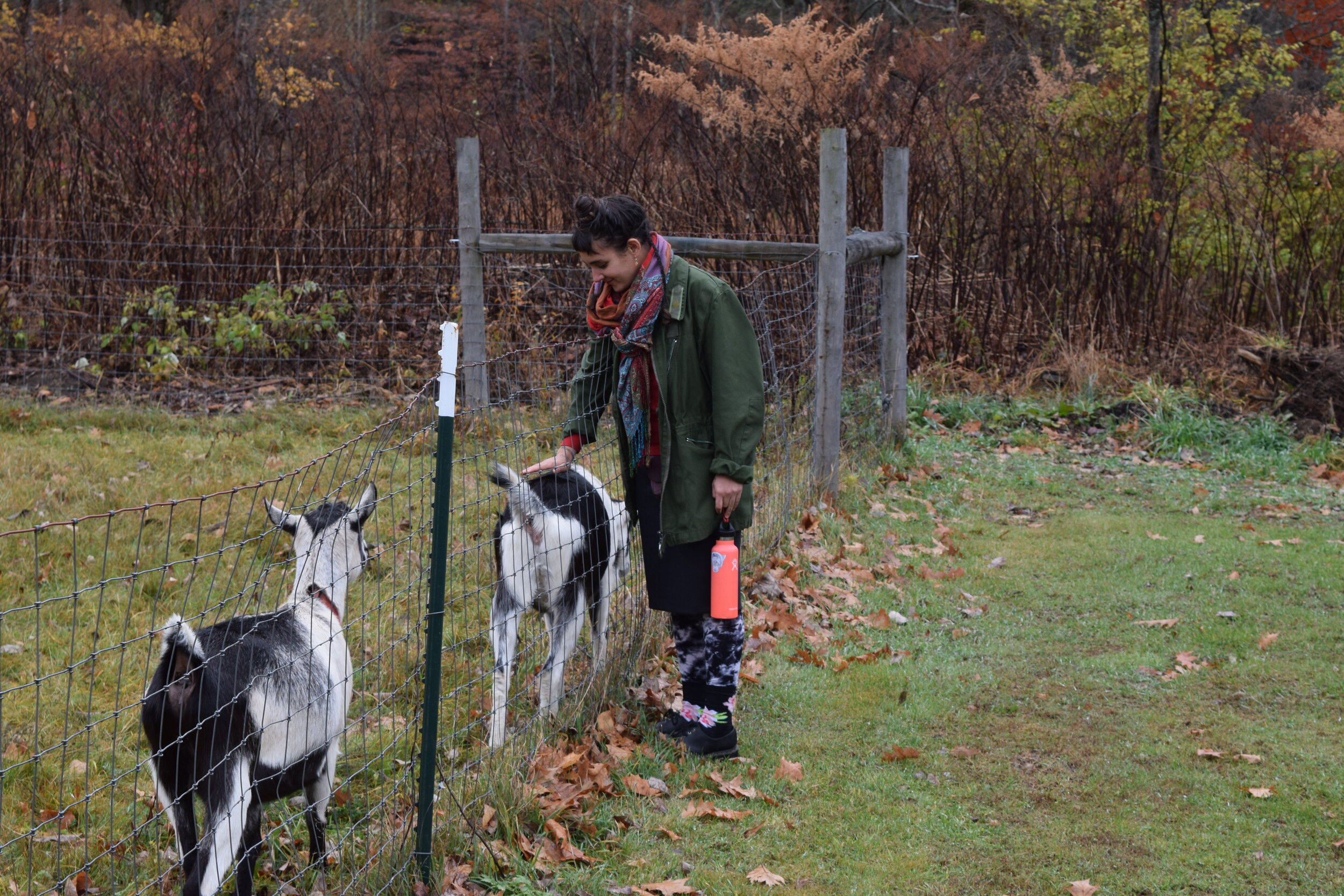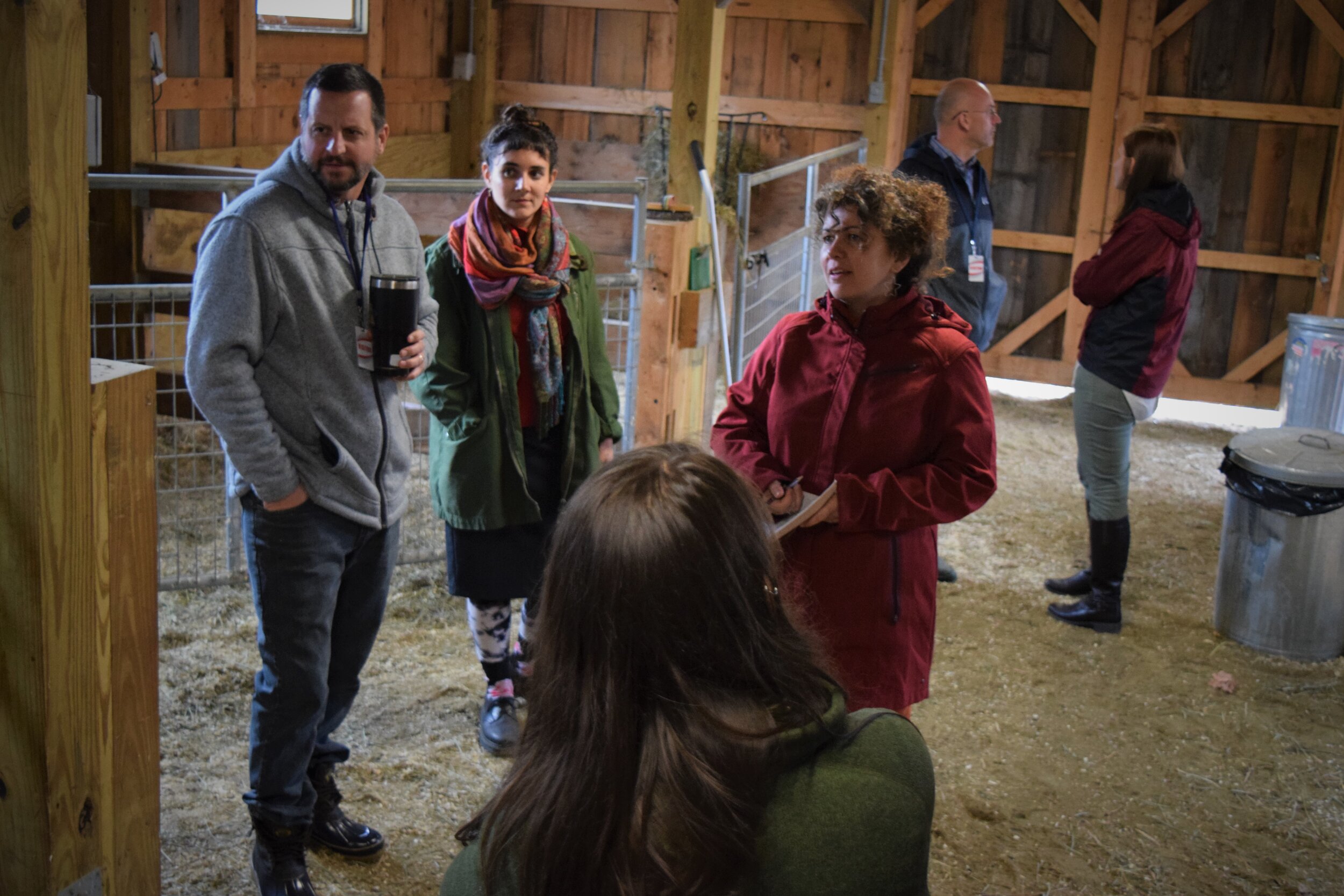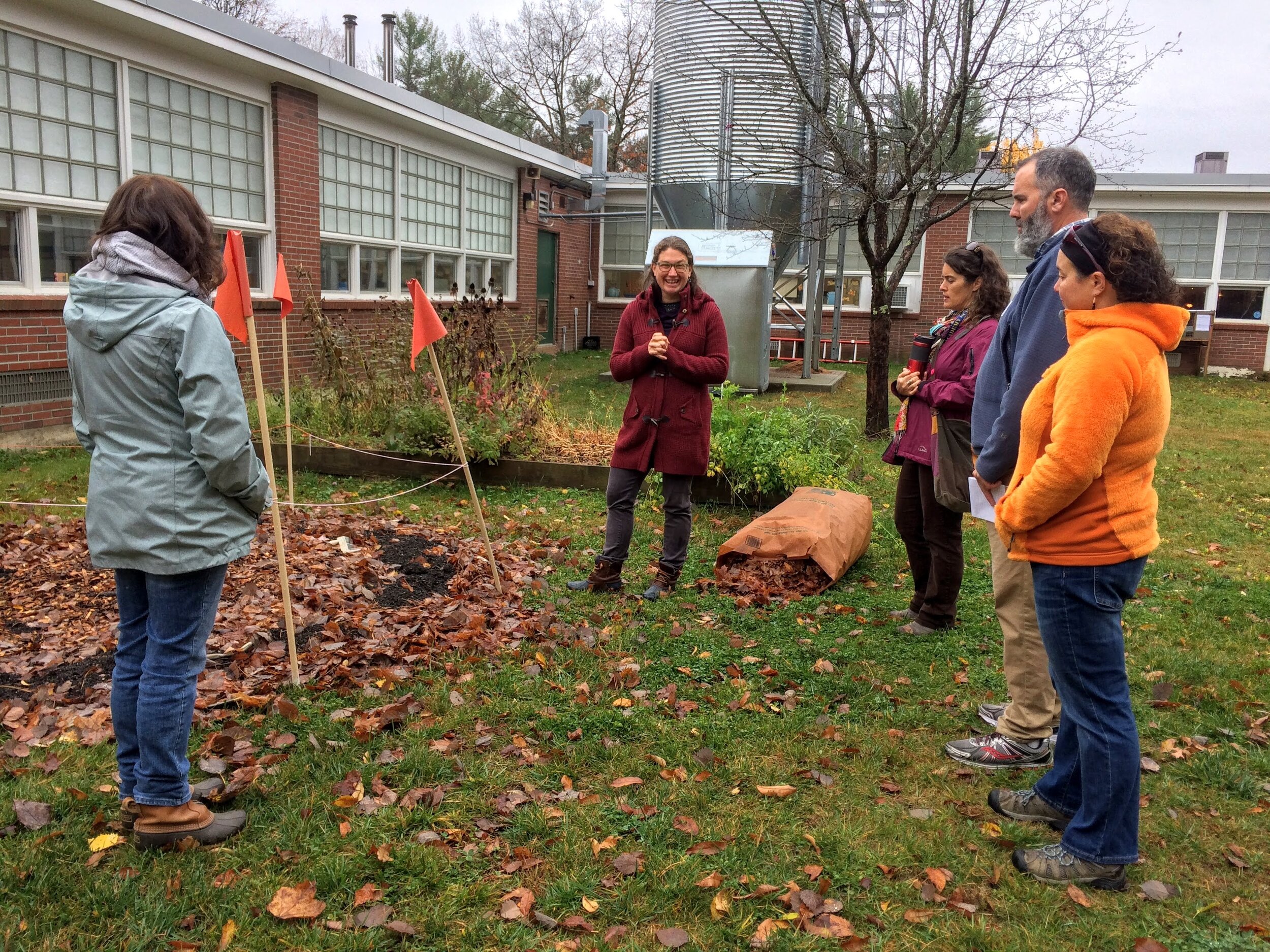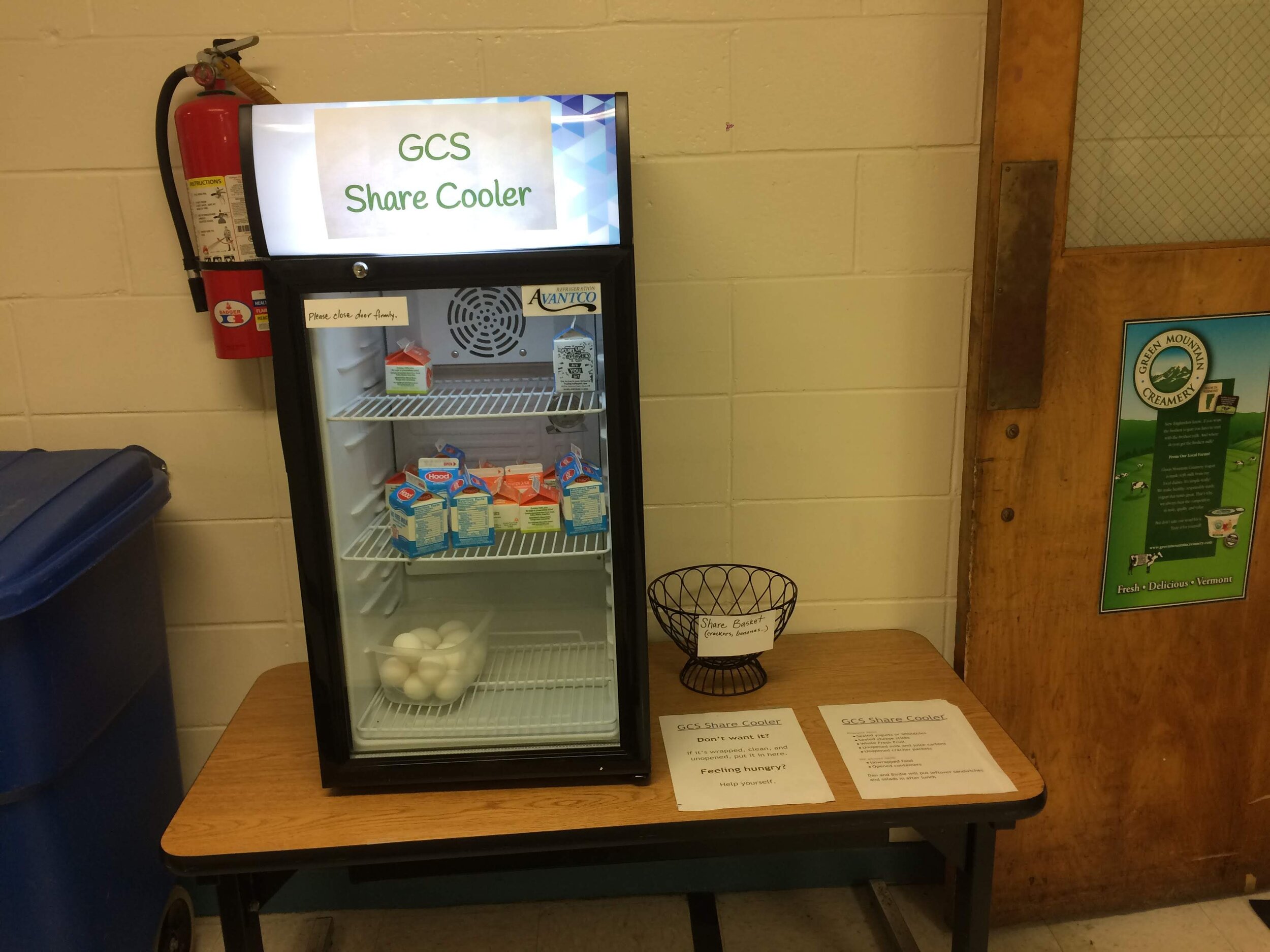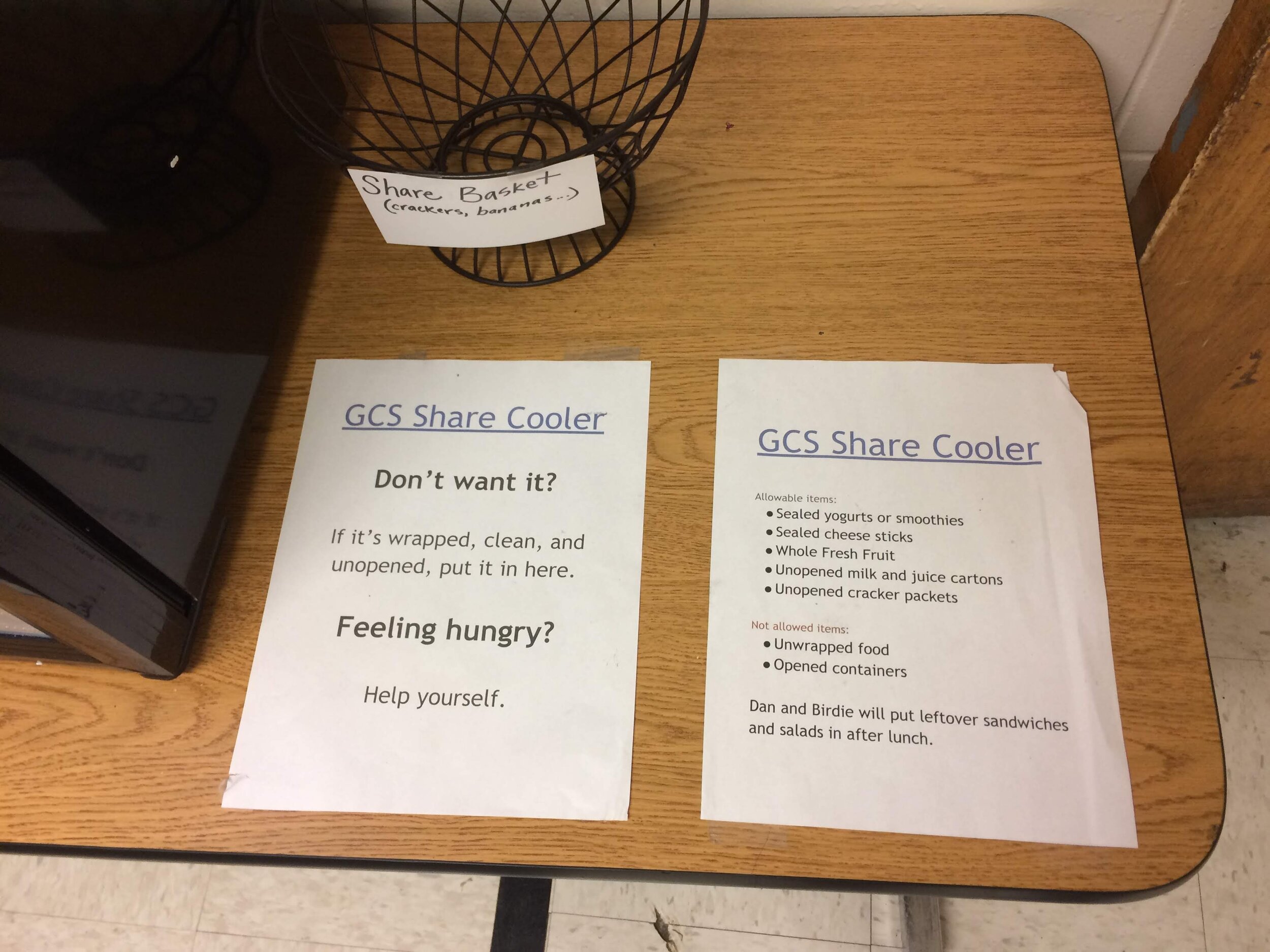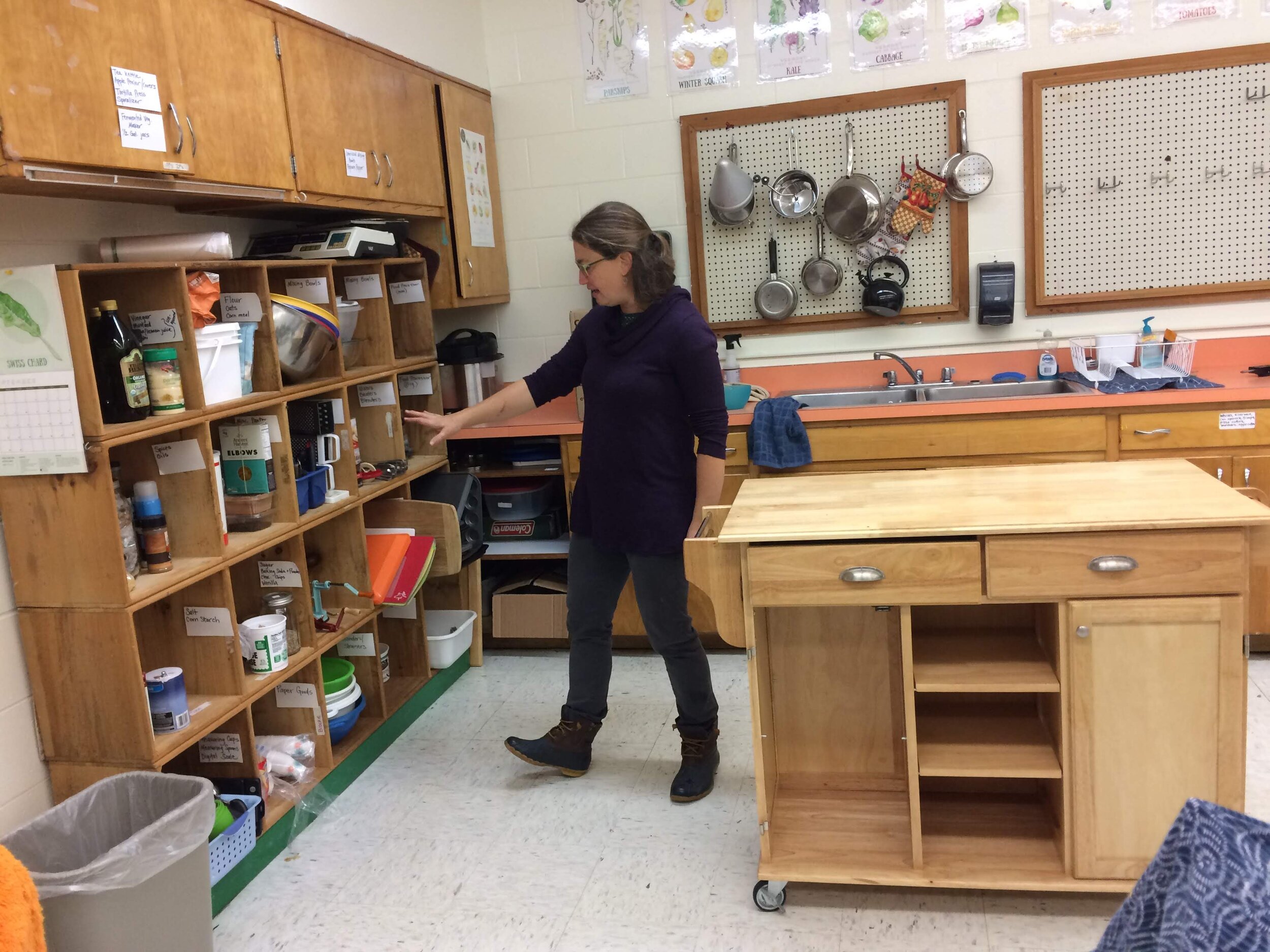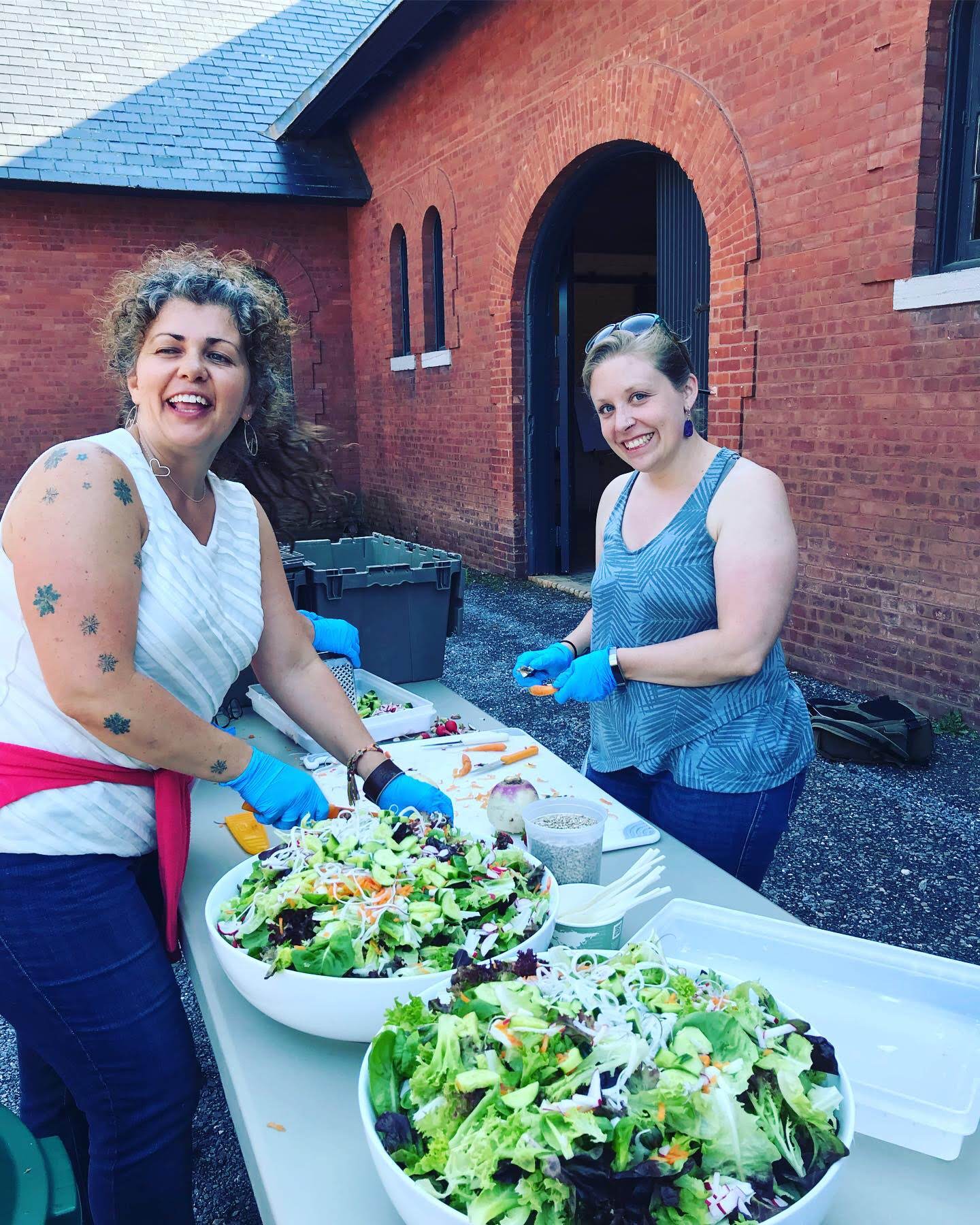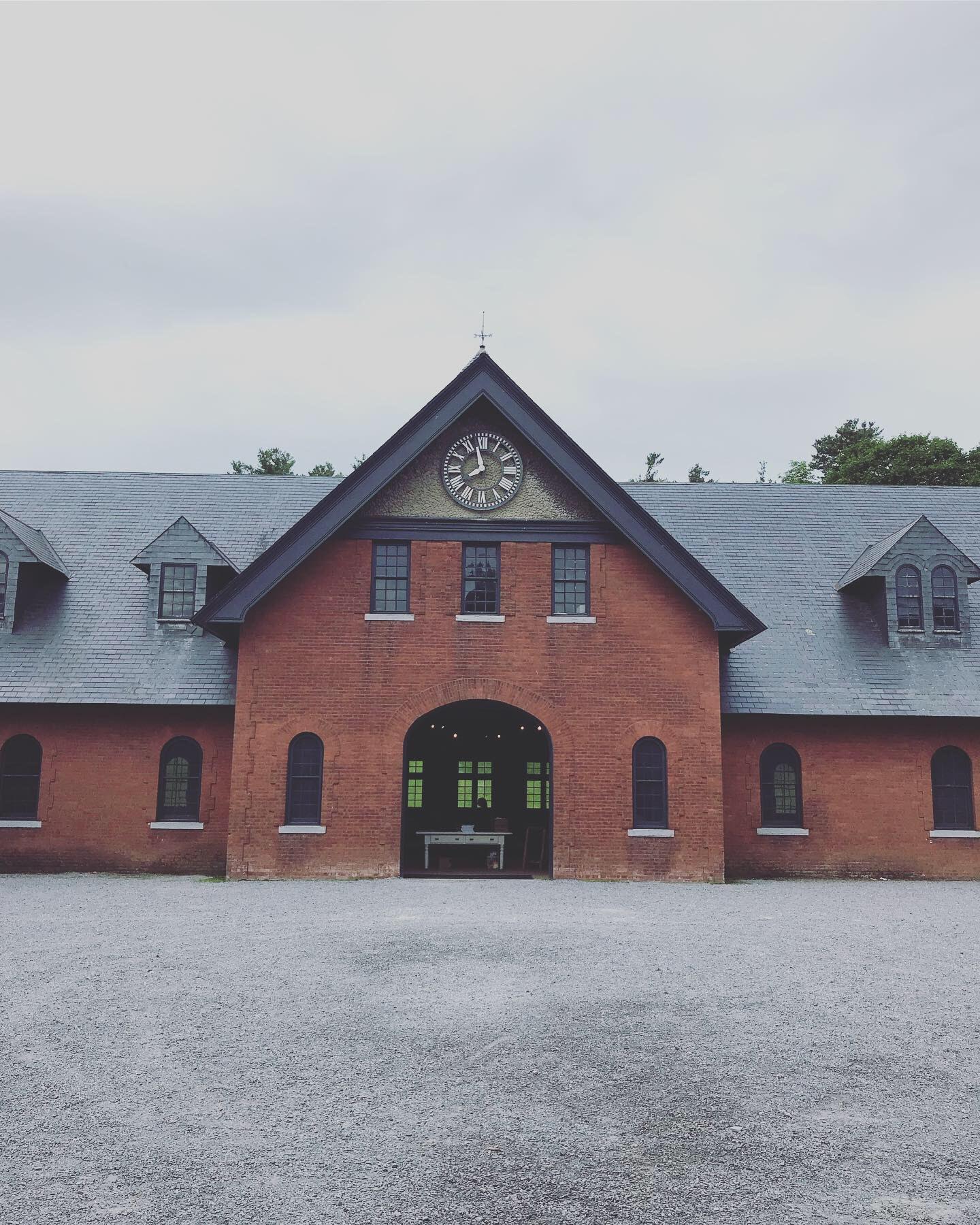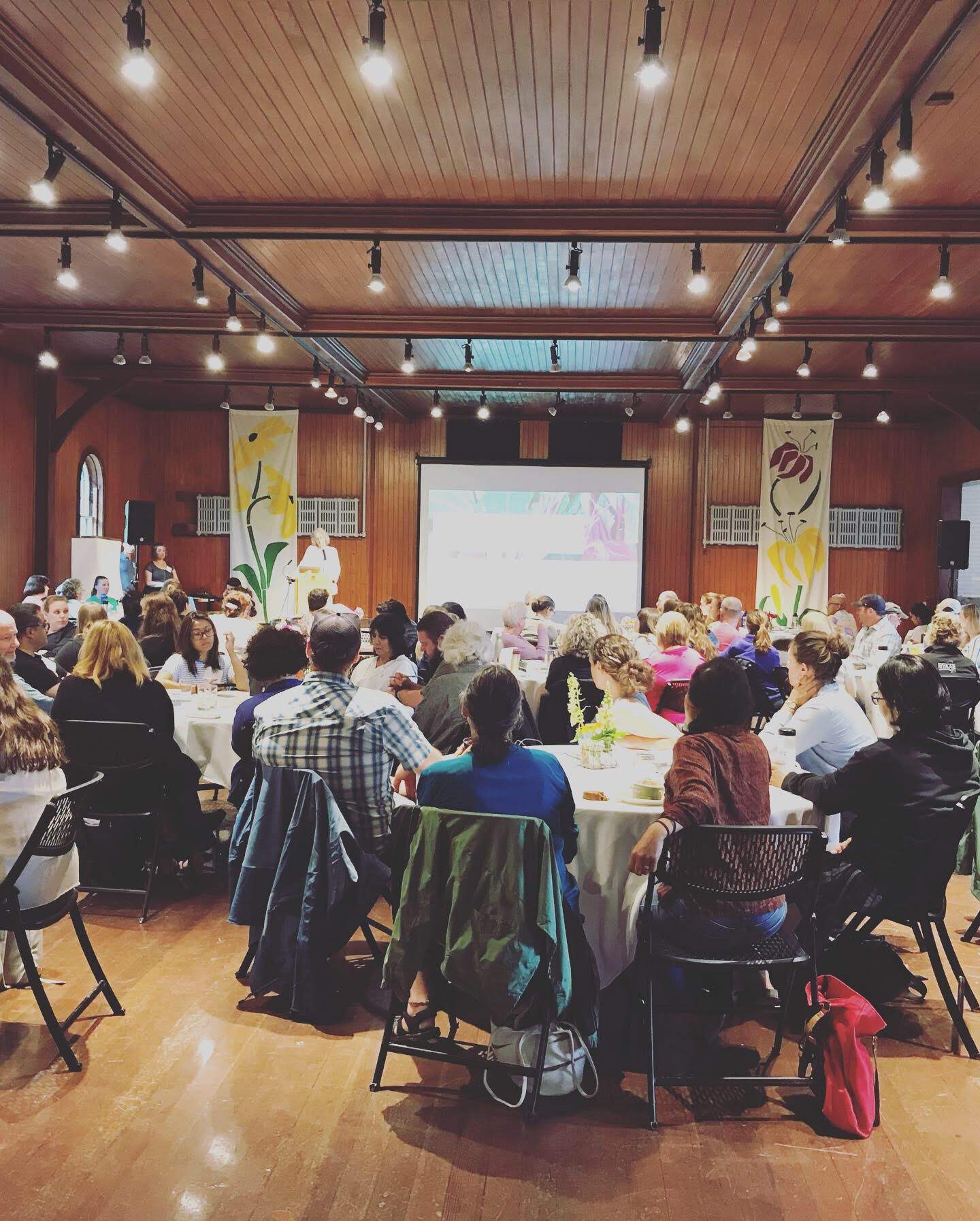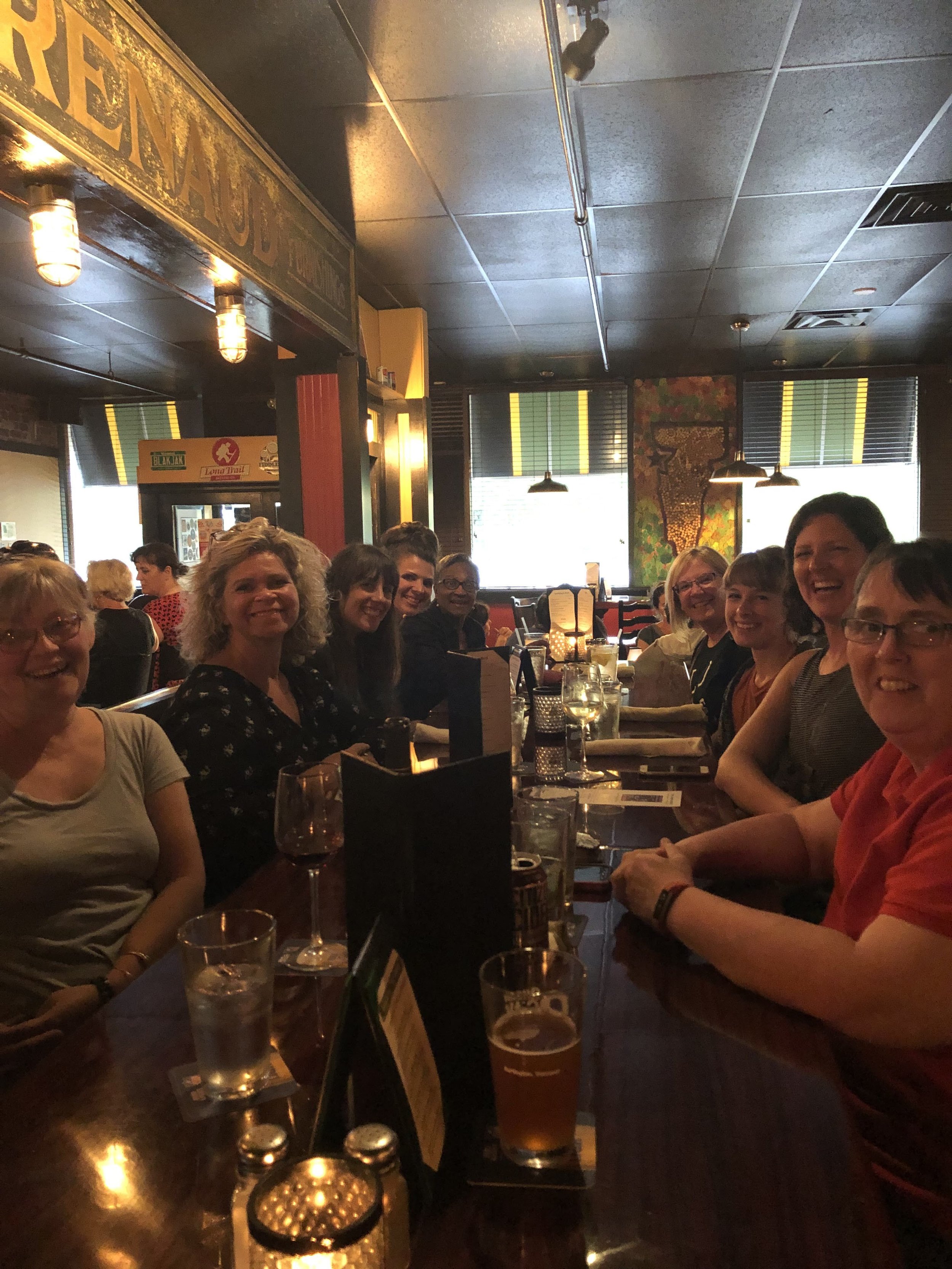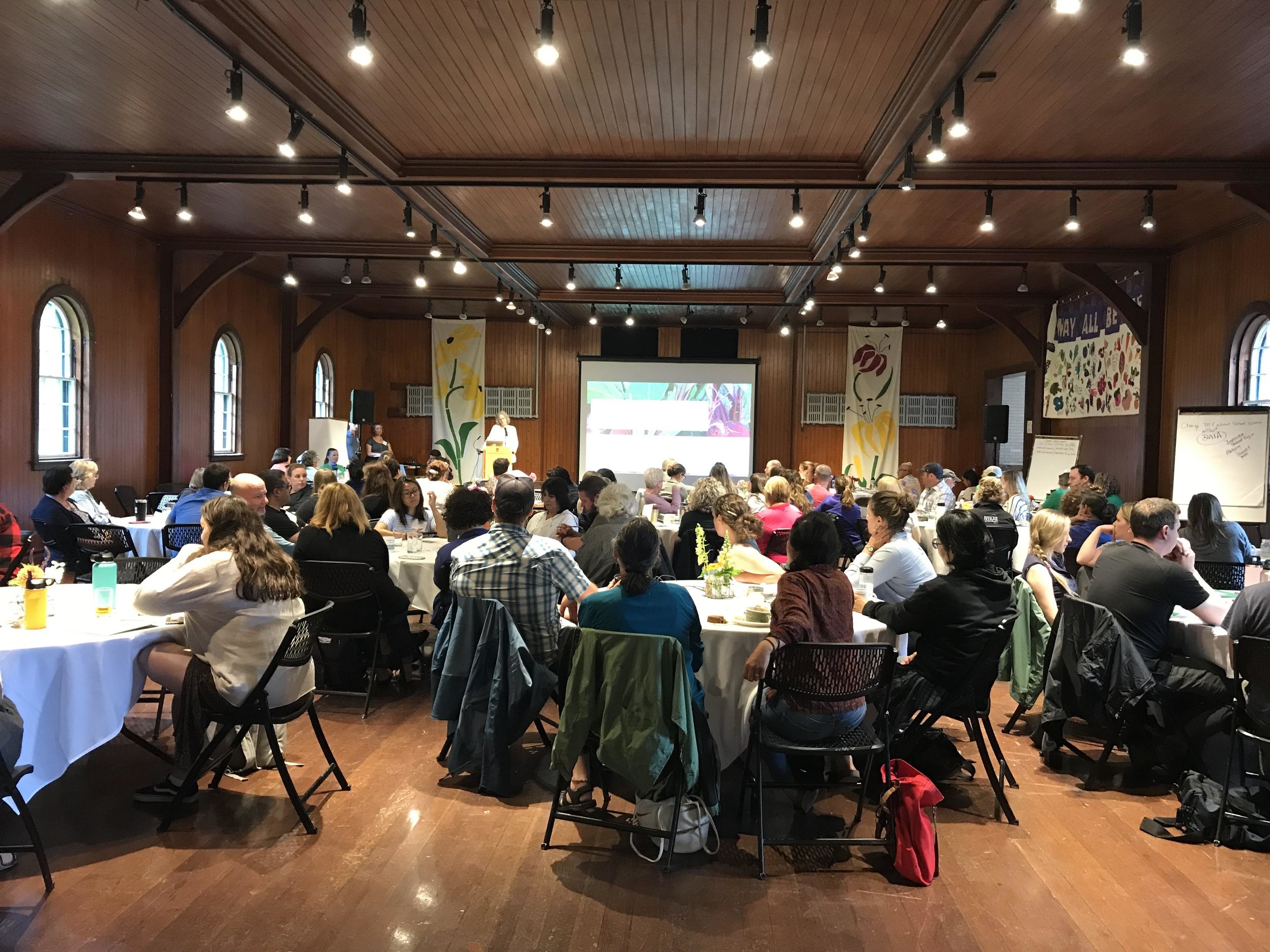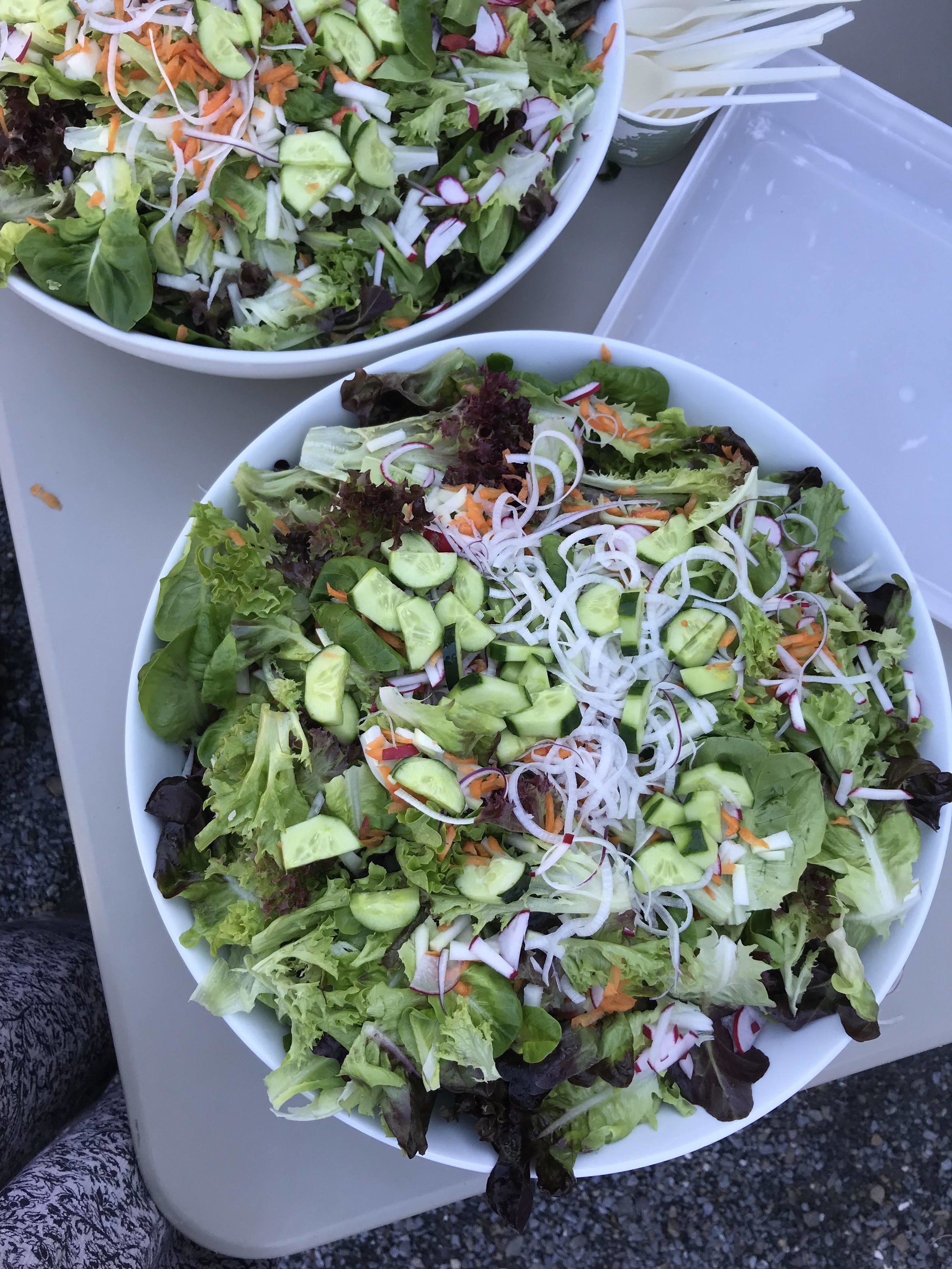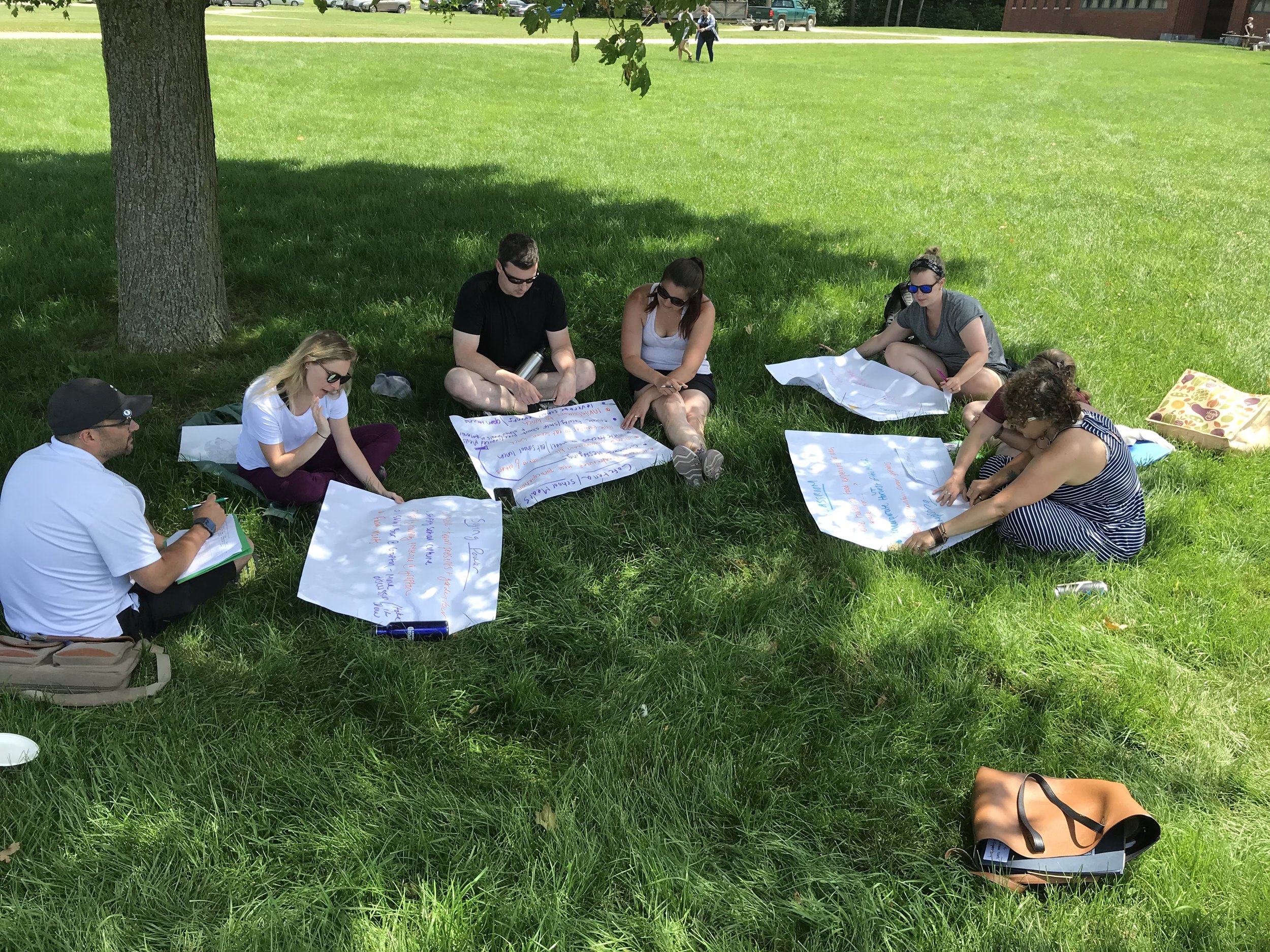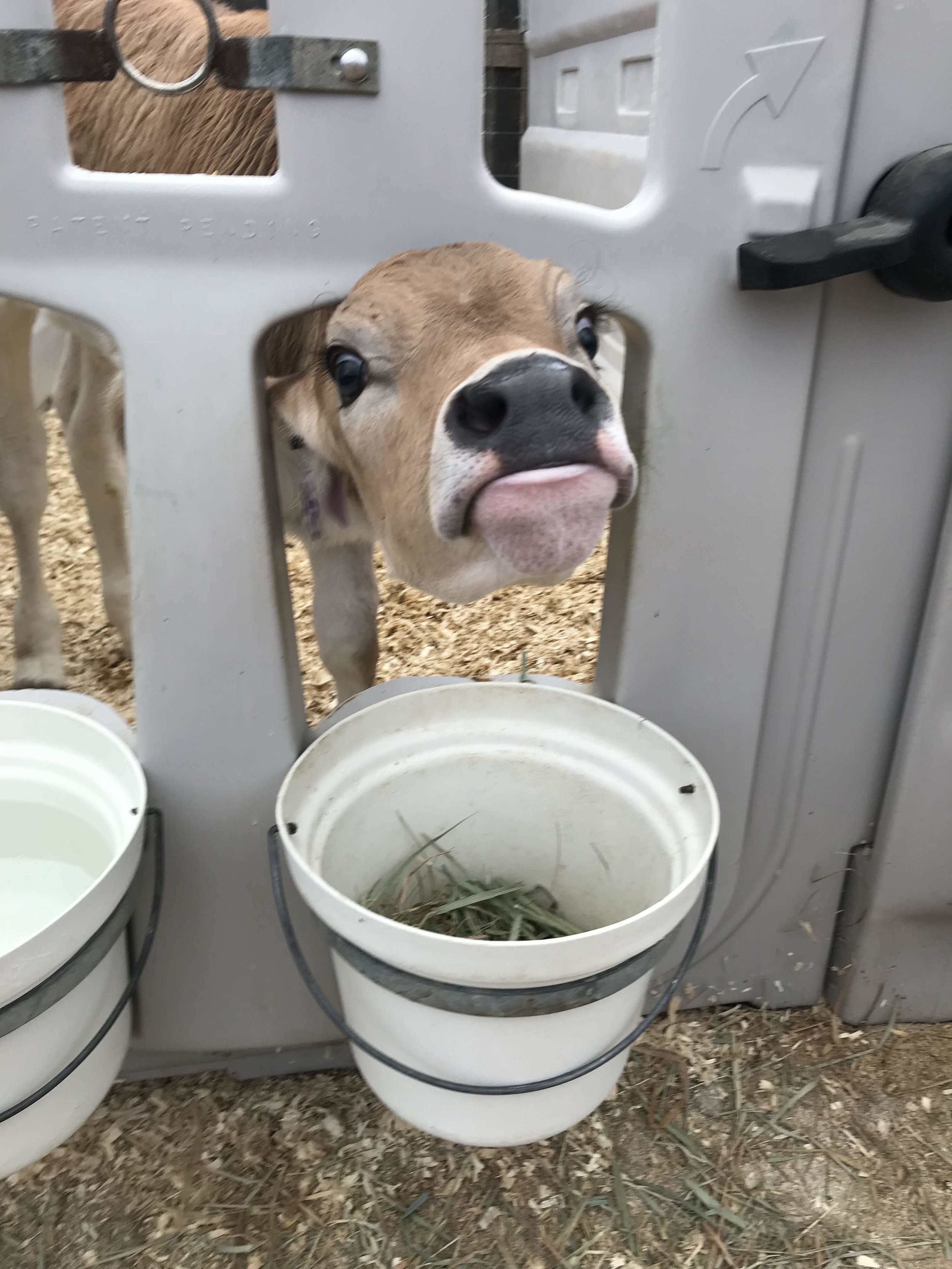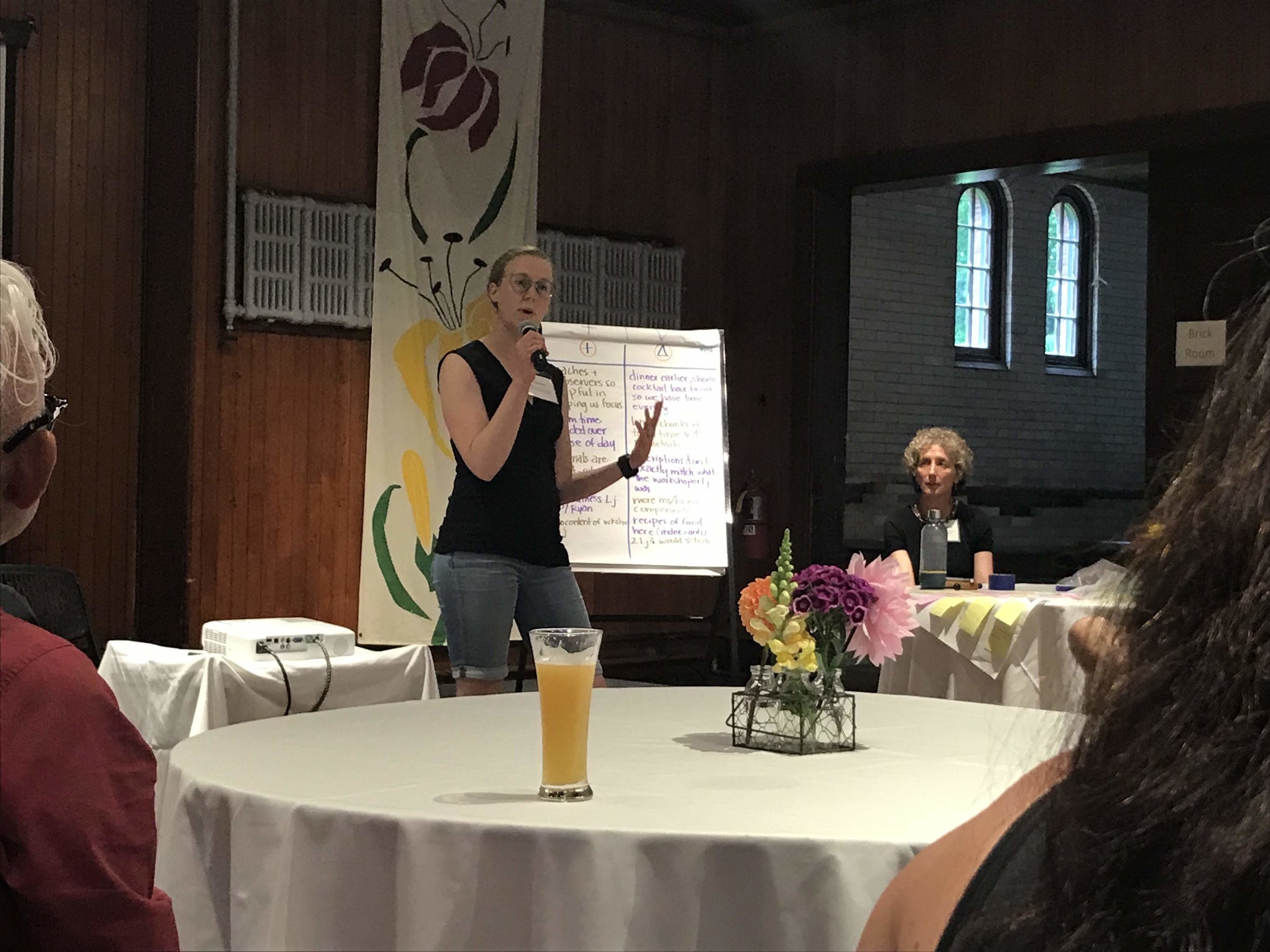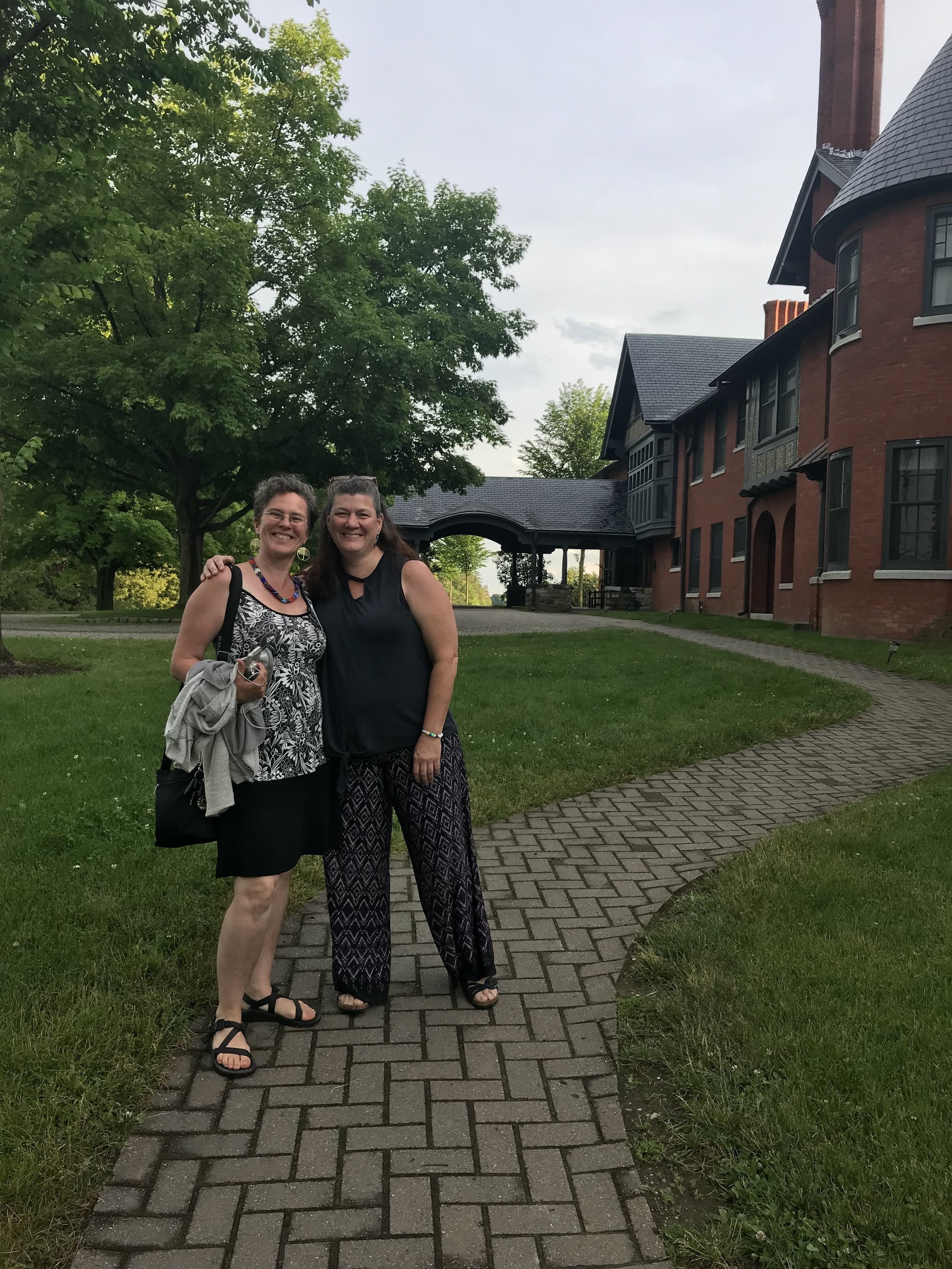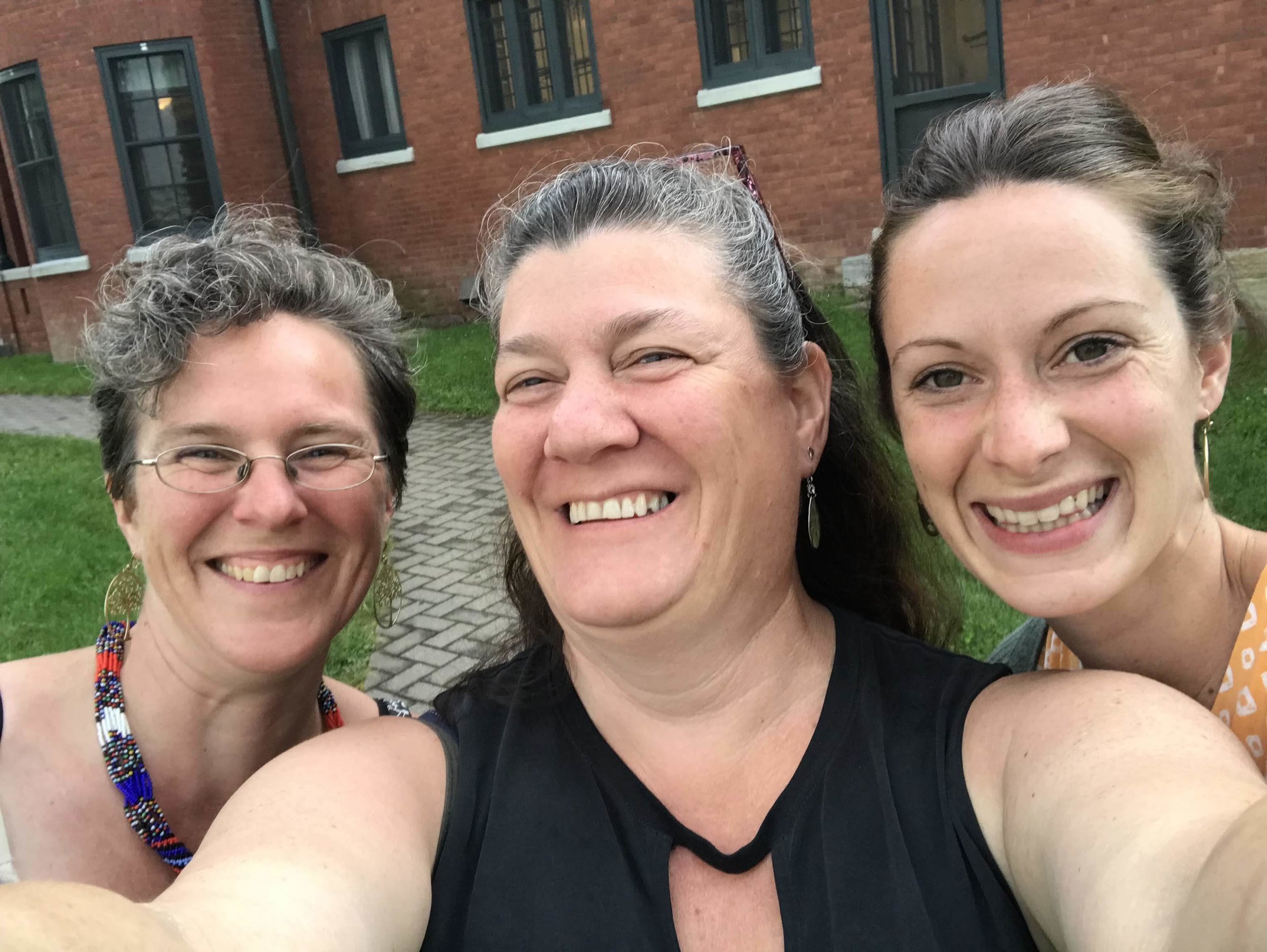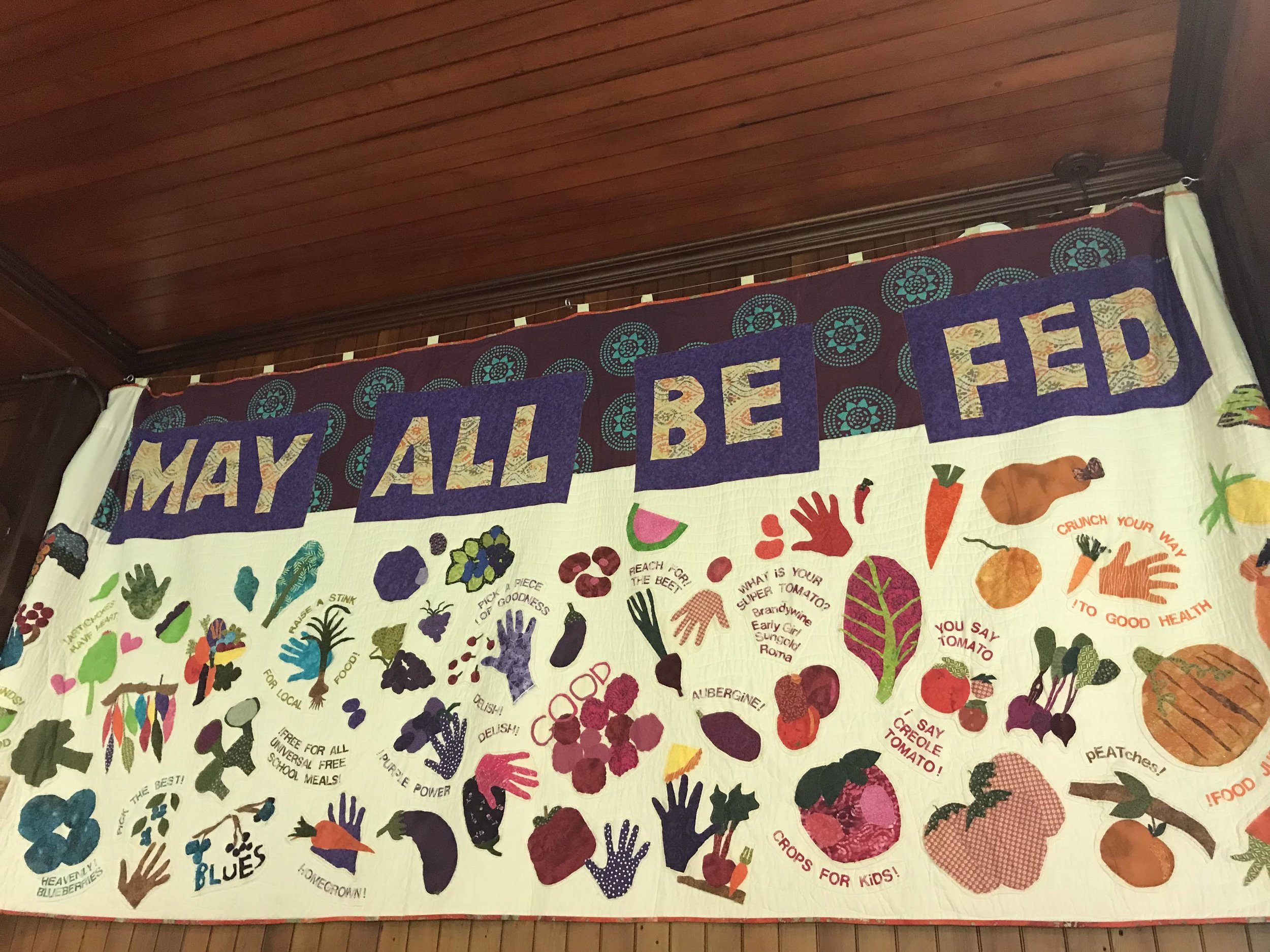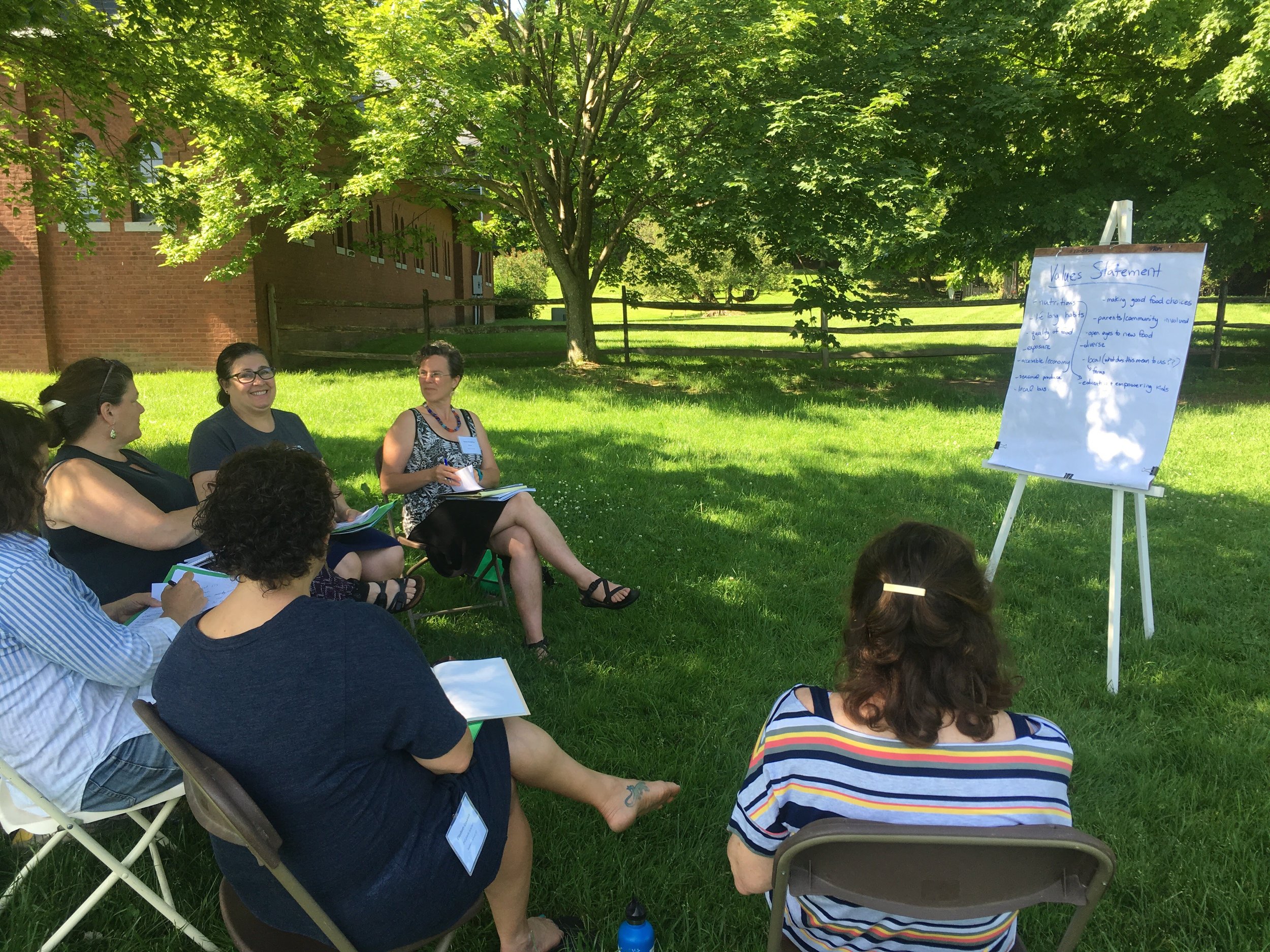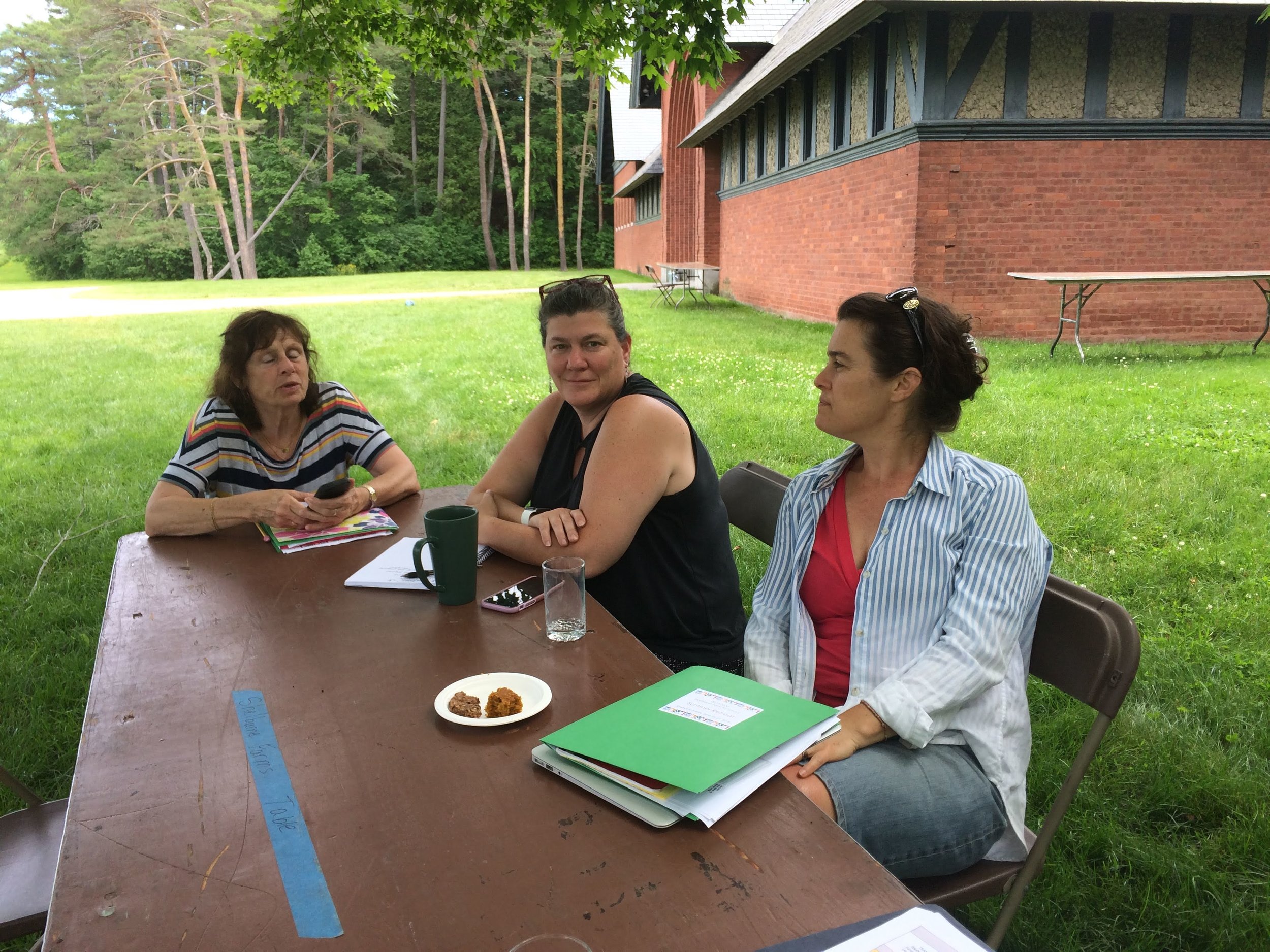The week before the start of the 2022-23 school year, Food Connects hosted a Celebration of Farm to School for school administrative teams and food service directors. We are so proud of the work being done by Farm to School teams at our member schools in Windham Central Supervisory Union, Windham Northeast Supervisory Union, and Windham Southeast School District, and we are grateful to the leaders who help make the work possible. At the event, we shared highlights from the 2021-22 school year at each member school, and we want to take a moment to share those highlights with a wider audience. Read on to hear the wonderful things happening in schools throughout the region!
Expanding Farm to School Throughout Windham County
Chroma Technology Supports Growth of Farm to School in the WNESU
Chroma Technology is growing Farm to School programs across the Windham Northeast Supervisory Union (WNESU) this school year by being the lead Farm to School donor for Food Connects, a Brattleboro-based non-profit serving schools in Windham County.
The Food Connects Farm to School program focuses on the “Three C’s” of Farm to School—classrooms, cafeterias, and communities. The generosity of Chroma Technology allows Food Connects to continue and strengthen its work in the WNESU. “We are incredibly grateful for the support that Chroma Technology is providing us this year,” says Sheila Humphreys, Food Connects Farm to School Coach. “Their dedication to Farm to School initiatives in our community ensures that more students can access locally grown food and can experience engaging Farm to School curriculum.”
“One of Chroma's core values is to be an active and caring member of our community,” says Newell Lessell, CEO of Chroma Technology. “Chroma supports Food Connects’s Farm to School program because helping develop healthy eating habits through education and access to nutritious, locally farmed food is good for children’s health, supports Vermont farmers, and builds healthy communities.”
So how do these funds impact schools and, more importantly, the students in the WNESU?
School Food
Bellows Falls Union High School students, and other students throughout the district, saw lots of local food throughout the summer through the Farm to School Cafe’s summer meal box initiative. This program provided students and their families with fresh, nutritious food throughout the summer, regardless of their financial circumstances. As part of Vermont Act 67 and the local food purchasing incentive, students will begin to see more local food on their trays this school year. The Food Connects Farm to School team is working hard to help school nutrition programs navigate this new incentive, in conjunction with offering Vermont grown and made foods through its Food Hub.
School Gardens
School gardens are an essential tool for hands-on and outdoor learning. Westminster Center School is a shining example of how school gardens can be done right. In May, the entire school participated in their Garden Day—a day where students plant seeds and seedlings in the school garden. As students harvest the final fruits of their labor, the garden continues to see an increase in infrastructure. Most notably, a frost-proof water spigot, a chicken coop, a small outdoor prep station, fire pits for outdoor cooking this winter, and blueberry bushes. Food Connects provided the school grant support, marketing materials, and hands-on support in the garden—and looks forward to supporting future garden projects, including the annual Farm and Field day later this month.
Farm to School Teams
Food Connects works with Farm to School teams throughout the region. This task is essential to help develop, guide, and implement Farm to School action plans, provide curriculum and grants support, and create materials and marketing for these programs. Central Elementary School formed a new Farm to School team this year that is participating in the Northeast Farm to School Institute. This school year, the school plans to expand its gardening and do more hands-on cooking in the classrooms, including monthly taste tests organized by the 2nd grade. Food Connects looks forward to working with Central’s Farm to School team to help bring in best practices for gardening and cooking with kids.
Grafton Elementary School is also deepening its Farm to School programming this year, with plans to add new grow labs, a hydroponic fish tank, and cooking tools, including a new oven to make it easier to teach cooking to students. Food Connects will continue to support these new initiatives through coaching and curriculum resources.
The Farm to School Year in Review
Mixing bowls full of tropical fruits and veggies, hot plates frying up potatoes, and new foods abound (think tamarind, hibiscus, and cassava). This past June, Green Street School’s sixth-grade French class prepped mango and avocado salad from Seychelles alongside a hearty Haitian riz colle, in addition to 9 other dishes and drinks to celebrate six years of learning about French language and culture.
Back in October of 2020, this would have seemed impossible. Thanks to dedicated educators throughout the region and Food Connects support, Farm to School scenes like this cooking experience continued throughout the year and helped provide normalcy to an otherwise challenging year.
Many educators saw Farm to School as a means to get students out of the classroom. “Gardening time was an absolute highlight of the day for me and my students,” reflected Molly Stoner, a 4th-grade teacher at Dummerston School. “Students would run out and check for sprouting/growth in their milk jug greenhouses the second they got to school. Later in the spring, adding compost to beds, planting and watering the seed they sown, taking home sprouts enriched us all and kept us grounded in all the potential of our beautiful Vermont land."
This spring, Dummerston planted 12 apple trees donated by Scott Farm Orchard. Many other school gardens expanded as well. For example, Grafton Elementary School added a pumpkin patch to their school garden. Central Elementary School in Bellows Falls expanded its urban growing space and plans to develop a more robust Farm to School program that emphasizes community connections.
For those feeding our students, the year never let up. Born out of the pandemic, our Who Feeds Our Kids series celebrated the school nutrition professionals who remain the backbone of the school community. Responding to rising food insecurity, they sent out weekend and school break food boxes. With local food from the Food Connects Food Hub highlighted, the food boxes provided another layer of support for families experiencing food insecurity. We’re excited to see the expanded service stay for years to come.
Food Connects’ flexible support helped schools maintain their programs and respond quickly to new obstacles; when our network schools couldn’t find COVID-19 cooking guidelines, we researched CDC recommendations to create a protocol for educators to follow. We put together 800 sprouting kits for students during the doldrums of late winter, adding some greenery to classrooms and anticipation for more planting come spring.
“It’s the creativity and flexibility that we saw throughout the pandemic that is going to help us spring forward next year,” says Conor Floyd, Food Connects Farm to School Program Manager. “We’re excited to continue working alongside our school partners to develop new programming opportunities.”
Farm to School Educator Spotlight: Mandy Walsh
We’re approaching one year of COVID learning, remote schooling, hybrid classrooms, and way too many Zoom meetings, and luckily there’s still some fantastic Farm to School (FTS) education happening throughout our region. This month, we’d like to highlight Mandy Walsh, the Westminster Center School and Grafton Elementary School Librarian and FTS Coordinator! She’s been up to quite a lot this year, despite all of the added hurdles. Here’s just a taste:
Diving Deeper into Food Sovereignty
Given the new pod structure, Mandy is spending more time with classes. While this makes some of the whole school activities she used to do more complicated (such as taste tests), it allows her to dive deeper into specific subjects. She is working with all grade levels on studying food access, food justice, and more intentionally investigating their local food system. The Groundswell Center for Local Food and Farming is a go-to resource for herself as she learns more about these issues. Her lessons range from Temple Grandin (an American scientist and advocate for the humane treatment of livestock) to the effects of global warming through literature (check out Sea Bear by Lindsay Moore) and thinking about human rights by reading the UN’s Universal Declaration of Human Rights.
Outdoor Education
This year, a trend we’ve seen across the region is a turn to outdoor education, and Westminster and Grafton are no different. Not only are students getting outside more, but they’re building fires and cooking as well. A popular recipe is bread on a stick. We’re hoping that outdoor education will stick in schools, even post-pandemic.
Chicken Coop
After being inspired by a trip to the Hawlemont School in Western Massachusetts, Westminster decided to retrofit an existing garden shed into a chicken coop. The project started as a community collaboration. Buck Adams Trucking & Excavating volunteered their time to clear the space by the shed, a neighbor donated fertilized eggs to start the flock, and Mandy’s husband came in to build the chicken yard enclosure.
Adam, the Maintenance Director, has been a big part of the FTS team as they’ve added garden space, blueberry bushes, and now the flock of chickens. Staff members also chip in to care for the chickens, especially on weekends and school breaks, when coordinating chores becomes more difficult. Each class gets to visit the chickens once a week. The flock has truly become part of the school community!
The FTS team hopes to grow the flock until they can begin regularly supplying the school kitchen with fresh eggs.
Are you a teacher in Windham or Windsor counties? We’d love to hear about your FTS successes this year! Shoot us a message at farmtoschool@foodconnects.org.
Lessons Learned from Two Food Connects Learning Journeys
This past summer, Food Connects accompanied two Farm to School teams to the Northeast Farm to School Institute (NEFTSI) summer retreat. The retreat kicked off a year-long program where teams receive Farm to School program support and professional development as well as year-round coaching. Academy School from WSESD and a joint Grafton Elementary School and Westminster Center School team from WNESU spent three days at Shelburne Farms planning for the school year, learning more about Farm to School programming, and networking with other professionals from across New England and New York.
As the rush of back to school started to slow down, Food Connects Farm to School coaches, Conor and Sheila, reconnected with their NEFTSI teams, excited to kick off the new school year with a strong Farm to School focus. Still energized by the summer retreat, both teams wanted to make sure they stayed connected with the larger Farm to School community while also working to improve the programs in their own schools. Luckily for everyone, southeastern Vermont and western Massachusetts are home to a number of leaders in the Farm to School movement. At Sheila’s suggestion, Food Connects helped to coordinate personalized learning journeys for both teams to visit two robust Farm to School programs in the area.
Hawlemont Regional School
Hawlemont is a public pre-K through 6th-grade school in the rural community of Charlemont, MA. Hawlemont was struggling to stay open after school choice resulted in declining enrollment. In an effort to save the school, staff and local community members decided to reinvent the school with a “farm-flavored approach to learning.” The HAY (Hawlemont, Agriculture, and YOU) program is now in its fifth year, and during that time the school has doubled its enrollment and now has a waiting list.
Hawlemont received grant funding and leveraged community support to build their program, using grant funds and donated supplies and labor to build a greenhouse, barn, and garden beds, and teachers worked together to create an integrated farm and food curriculum. The result is a complete reimagining of the school, featuring successful collaborations with local farmers and community members where Hawlemont students engage in hands-on learning as they care for animals, nurture gardens, and develop new skills in a real farm setting.
Hawlemont added a new staff position, HAY teacher, and all students have HAY class each week for 30-45 minutes, just like music, art, and PE classes. Each class has daily barn chores and learns cooking, canning, and preserving, as well as beekeeping and running a weekly in-school farmers market where produce from the school garden and value-added products like pesto, canned tomatoes, salsa, jelly, and freshly baked pies all made by students are sold to parents and the community.
Hawlemont is working hard to get more local food into its independently run lunch program. In addition to purchasing from local farms, when budgetary constraints allow, all of the jelly used for PB & J’s for the entire school year comes from jelly students in the HAY program make from either grapes grown on the school property or from fruit picked by students from local farms.
Guilford Central School
For years, Guilford has worked hard at building its Farm to School program and they have been a partner of Food Connects since 2014. In her second year, Sarah Rosow is the school’s Farm to School Coordinator. As both teams saw during their visits, Farm to School programming is strongest when there is a consistent collaboration between a dedicated coordinator and a team of champions from throughout the school. At Guilford, Sarah works with all the teachers to find time to incorporate Farm to School lessons into their existing curriculum as well as additional enrichment activities. She works with Dan, the school’s food service director, to integrate taste tests and Harvest of the Month items into the menu. Through this collaboration, Sarah is able to stay focused on Farm to School and keep projects moving forward, while the team of faculty and staff ensure that there remains a strong culture of Farm to School throughout the building.
So what does Farm to School at Guilford look like for the students? Getting dirty in the gardens, cooking up delicious Harvest of the Month recipes in the Farm to School room, and working in their classrooms to design and make market-ready products for the school gardens. From pre-K all the way to the 6th grade, students engage in Farm to School through classroom learning and extension activities.
Farm to School also reaches the cafeteria, where Chef Dan is an active member on the Farm to School team and works with Food Connects to increase local purchasing and track trends over time. This past Thanksgiving, Dan put on a feast for the entire community that highlighted many local items. Now, he’s working with Sarah to highlight many of the dishes students make in the Farm to School classroom by incorporating them into his lunch menus.
The Guilford Farm to School program made a particularly large splash this past month when they hosted their inaugural Holiday Market, where local vendors joined students in selling different crafts. Of the money made by each classroom by selling their items, half is being donated to a charity of their choosing and the other half is going to be reinvested in Farm to School programming for the students.
After two inspiring days of learning and sharing, there were definitely some themes the teams walked away with when thinking about program longevity and sustainability. In both schools, there was a balance between team collaboration and a main coordinator. Oftentimes, Farm to School programs grow their roots in a school thanks to the devoted efforts of a single champion. While that helps keep the momentum going, it’s important to quickly build a diverse team of support. Otherwise, when that champion leaves or becomes too busy themselves, all the work they did can get lost in the shuffle.
The community support both schools have is also one of their greatest strengths. In Hawlemont, community members rallied to save their school, build a barn, and help care for the animals. Guilford partners with local farmers to source beef for lunches, handle their food scraps, and support events like the Holiday Market. In addition to gathering a diverse team of school staff, another first step for a fledgling Farm to School program should be to think about what makes their community special and ways to involve community members as much as possible.
Lastly, both programs are actively involved in parenting their financial sustainability. Grants and fundraising are inevitably a big part of Farm to School. Having dedicated coordinators to work on larger projects and support from organizations like Food Connects goes a long way in supplementing school budgets. Each program has its own needs, but having a variety of funding sources for staff and materials is key in creating robust programs that carry on for years.
2019 Northeast Farm to School Institute Recap
During the last week of June, our Farm to School team had the privilege of coaching two amazing teams of educators, school nutrition professionals, and administrators from Windham County at the Northeast Farm to School Summer Institute at Shelburne Farms. We spent three days on the shores of Lake Champlain, immersed in learning about what makes a Farm to School program vibrant and robust, and working with our teams on their action plans for the coming year.
The team from Academy School in Brattleboro is a newly formed committee, and they have several goals, including:
Research what thriving Farm to School programs in nearby communities look like
Establish a vibrant Farm to School committee with broad grade level representation and strong support from school administration
Recruit at least one family member to join the committee
Increase breakfast participation by making changes to the breakfast structure
The team from Windham Northeast includes representatives from Grafton and Westminster Elementary schools who are passionate about connecting their classrooms with the incredible local food that’s now being served in cafeterias across the Supervisory Union. Their vision is to “create food experiences that nourish, inspire and educate” and some of their goals are:
To implement a VT Harvest of the Month Taste Test Program
To host a student-led Thanksgiving feast featuring local and garden produce at each school
To create and maintain school gardens, including compost collection
To begin shifting the culture around school food by educating faculty and staff about school meal and farm to school programming
To promote farm to school within their community
Bellows Falls Expands Farm to School Programming
This past September, Windham Northeast Supervisory Union kicked off a new school meal program: the Farm to School Cafe. Led by Food Service Director Harley Sterling, the Farm to School Cafe model is thriving in Bellows Falls and the surrounding towns, including Westminster, Grafton, Athens, and Saxtons River. While breakfast and lunch menus still look familiar to students and families, they now feature a variety of locally grown products and the large majority of meals are prepared from scratch. Students at these schools are enjoying things like locally raised beef, potatoes, carrots, corn, tortillas, beans, dairy, maple syrup, and more!
According to Sterling, this new model has been well received by students and faculty alike.
“We get excited every time we see a new face come through the lunch line or we can get someone to try something for the first time and they end up loving it. Just knowing that the kids in these communities have access to the very best food every day in school—there is no better feeling. We’re seeing steady gains in student participation, especially at the schools where we’ve made the biggest changes. We had pretty terrific programs at Saxtons River, Grafton, and Westminster. At the Bellows Falls schools, we’ve seen about a 5% bump already this first year. We have also seen sales to adults triple. We feel like this is a really great leading measure of how good our meals are since adults have the choice to buy whatever they want for lunch. The fact that they are choosing to spend their money on the same food we serve to students speaks to the quality that our school chefs are serving up.”
Administrators within the school district have also welcomed these positive cafeteria changes and intend to build on them wherever possible. In fact, the district’s wellness committee, led by assistant superintendent Lynn Carey, just received a $15,000 grant from the Vermont Agency of Agriculture Food & Markets to support Farm to School initiatives at Bellows Falls Middle School. The school is excited to use this funding for updating kitchen equipment, re-building garden beds, re-envisioning cafeteria space, and hosting a community meal & garden tour this summer.
The team, which also includes Art teacher, MaryLou Massouco, Family & Consumer Sciences teacher, Jane Mitchell, Finance Specialist, Shawna Coutu, and Food Service Director, Harley Sterling, has set some lofty farm to schools goals, including new projects in the classroom, cafeteria, and community. Carey says, “I am proud of the improvements accomplished since we brought our food services in-house with Harley.” She looks forward to coupling these changes with efforts in the classroom and community.
Other schools in the district are also eager to engage students in Farm to School education. Westminster Center School and Grafton Elementary School were recently accepted to attend the Northeast Farm to School Institute, a year-long professional development opportunity for twelve school teams from New England and New York, hosted by Vermont FEED. The institute kicks off this June at Shelburne Farms and includes three full days of action planning, professional learning, and networking with like-minded individuals from across the northeast. Grafton Elementary principal, Liz Harty, and Westminster Center School librarian, Mandy Walsh, are excited to use this opportunity as a way to partner more intentionally and bring new and engaging activities to their students. Harty says, “We are excited to expand on what we already have in place and provide students with more authentic learning opportunities."
Windham Northeast is part of a larger movement in Vermont to reconnect students with their food. The local food system is vibrant and the schools are stepping up to further strengthen it. In order to create resilient communities in southern Vermont, educators are beginning to talk with students about where their food comes from and engage them in hands-on learning to reinforce Farm to School concepts. Classrooms are visiting local farms, working in school gardens, cooking with teachers, and connecting with their environment in new and exciting ways. The region partners with a local farm to school organization, Food Connects, an entrepreneurial non-profit that delivers locally produced food as well as educational and consulting services aimed at transforming local food systems.




